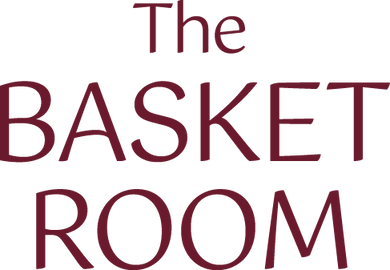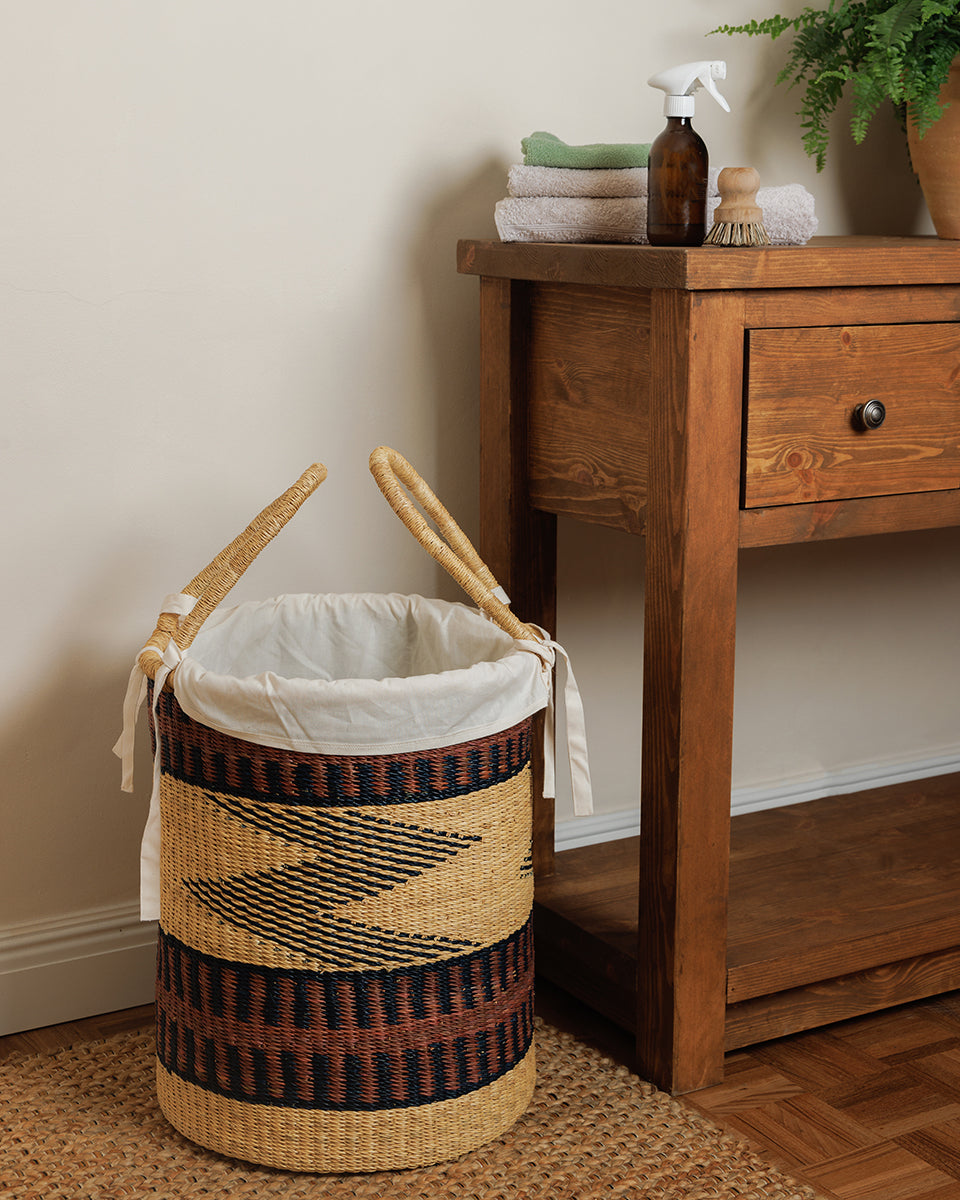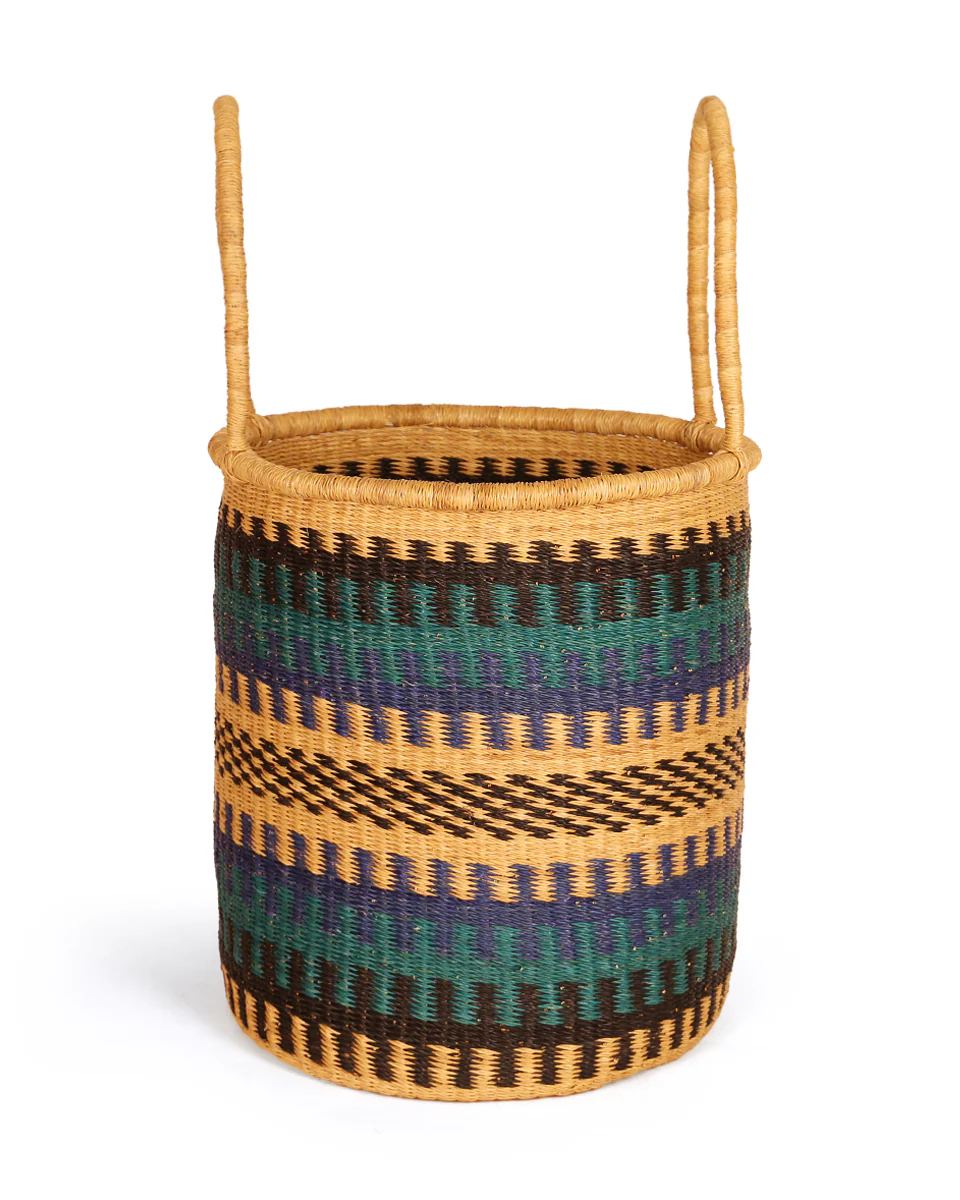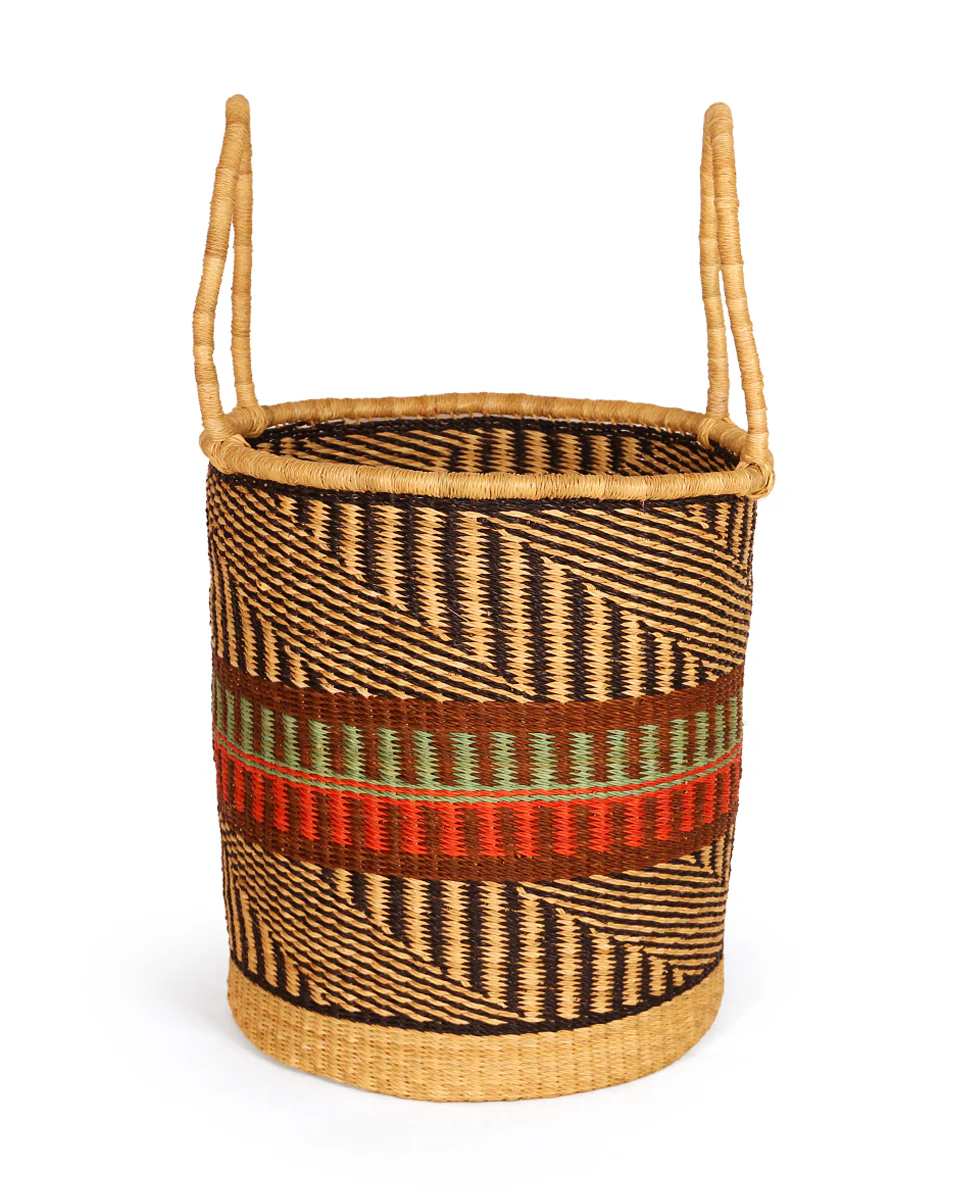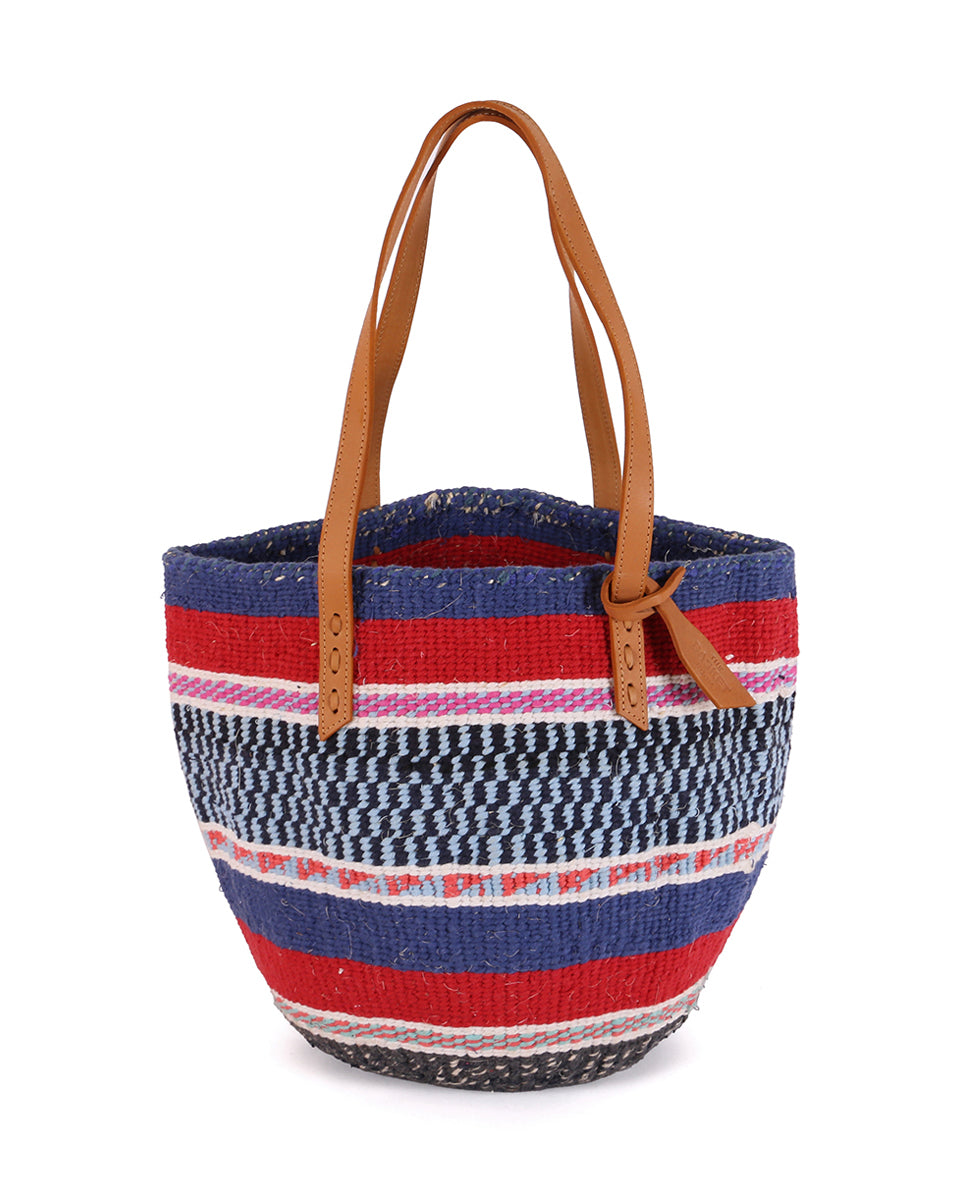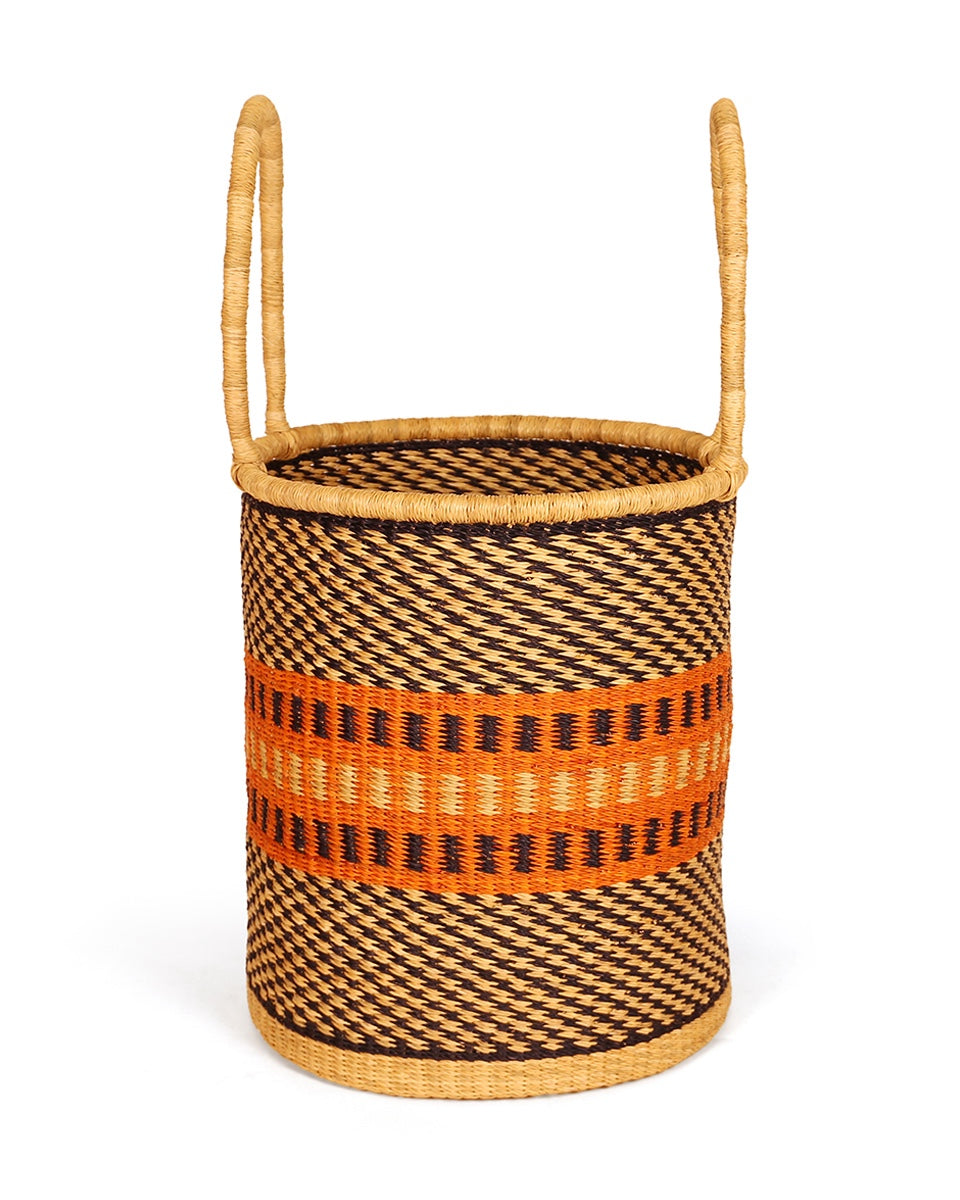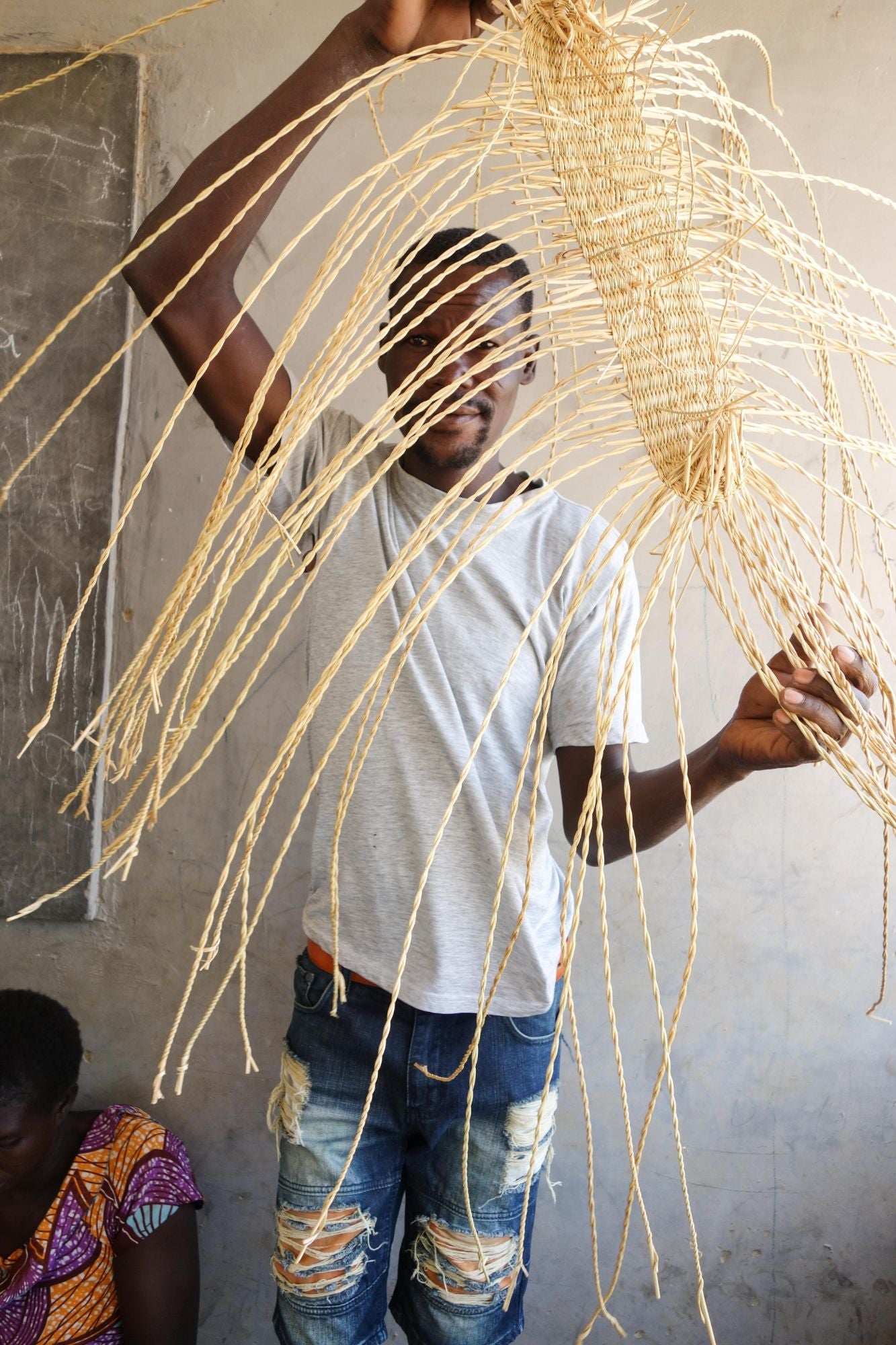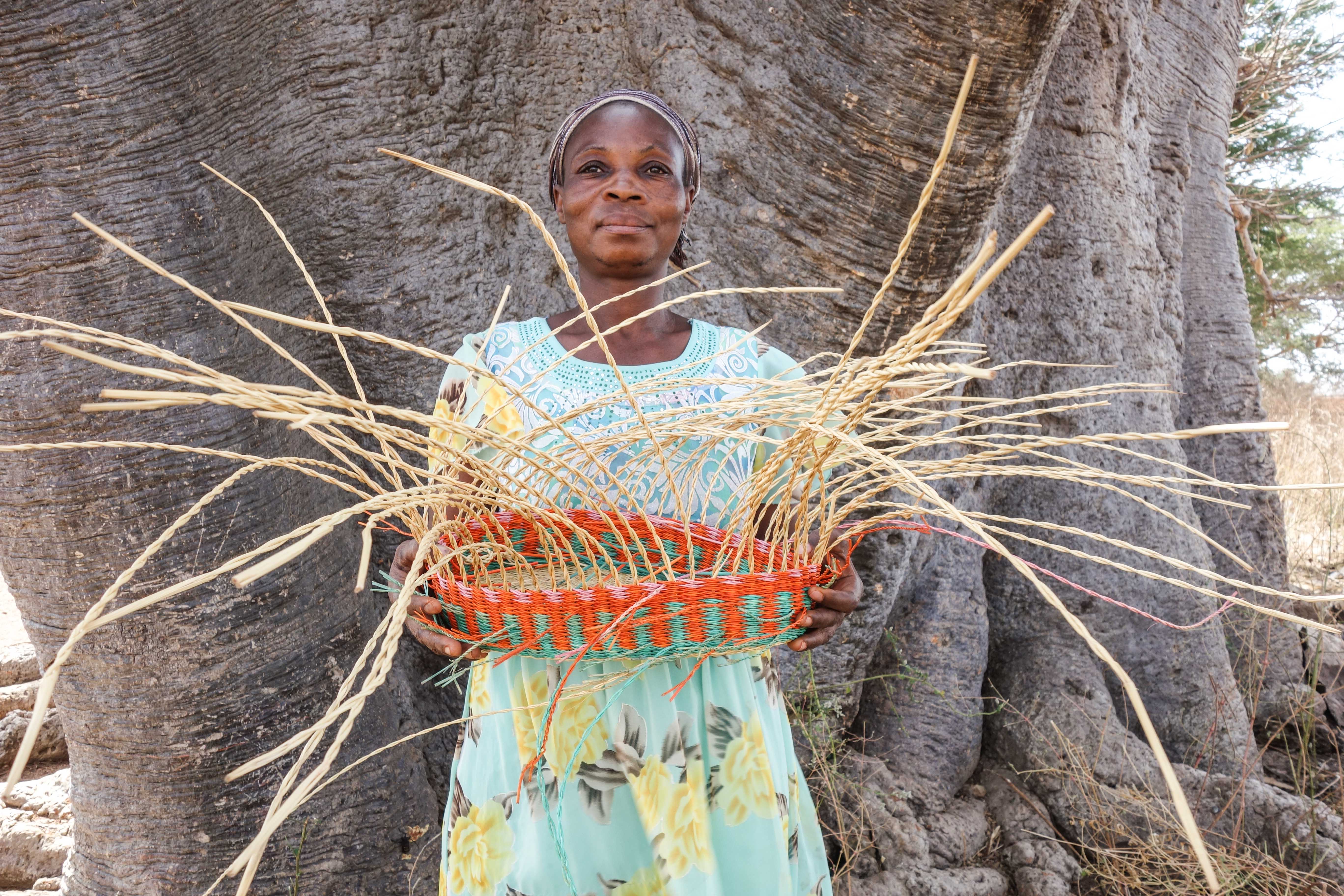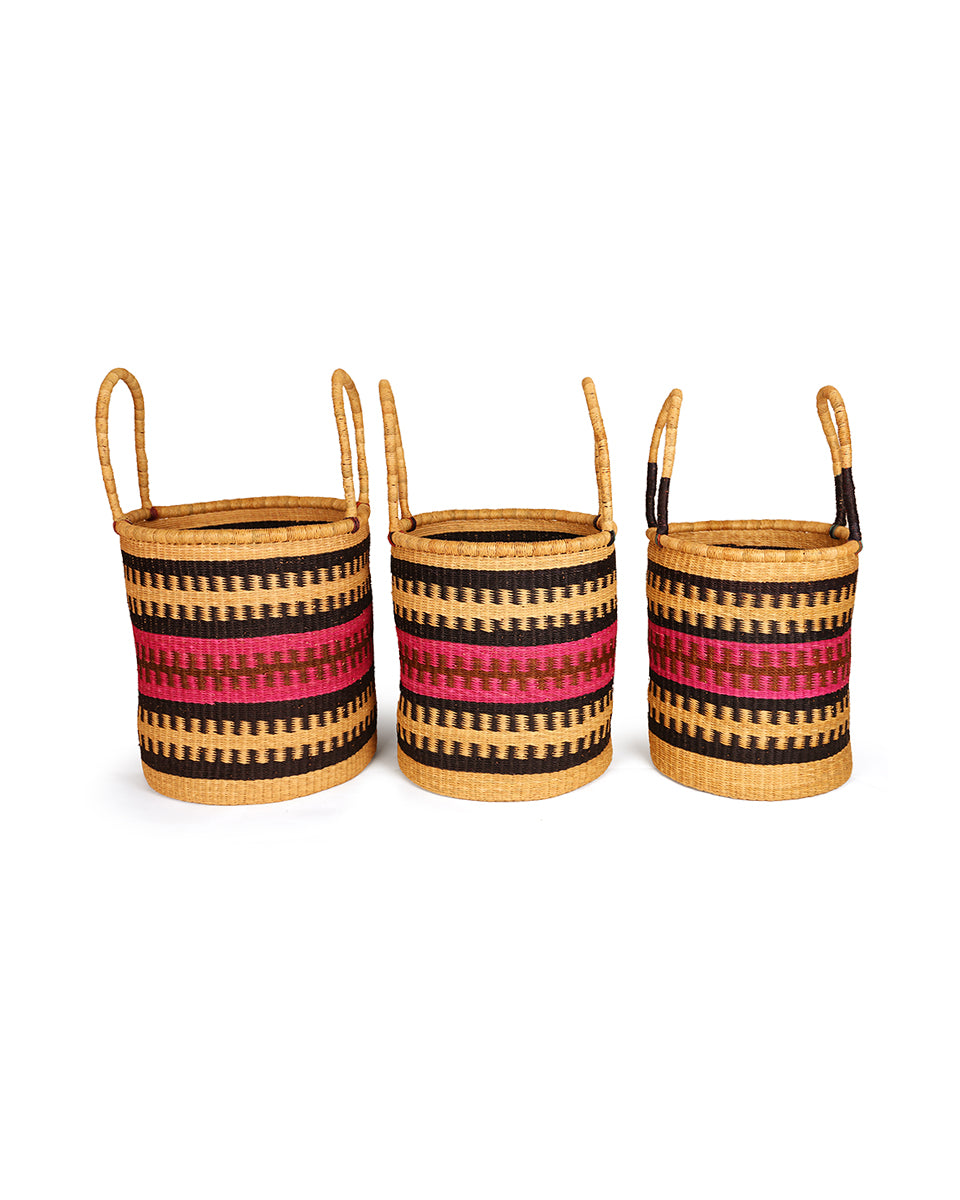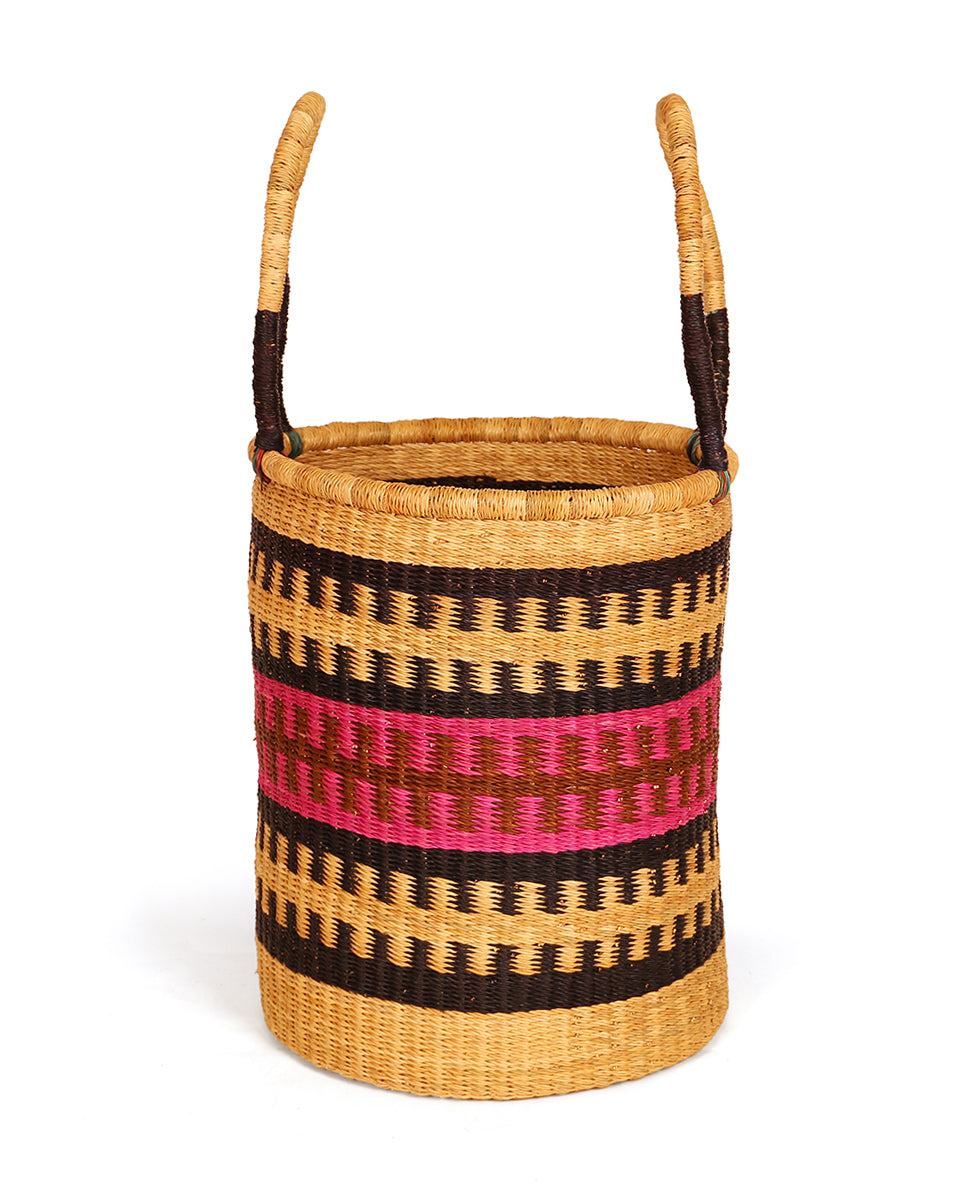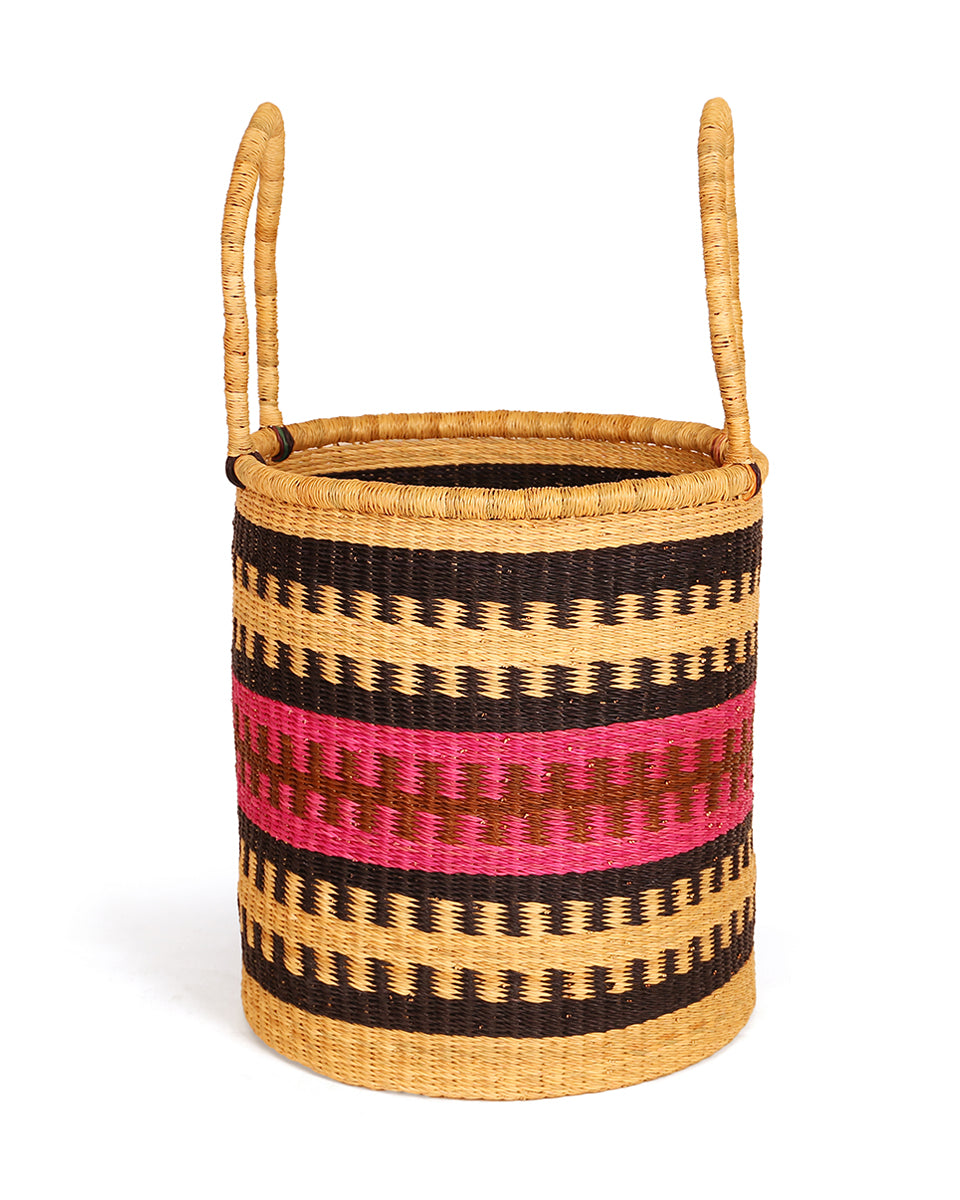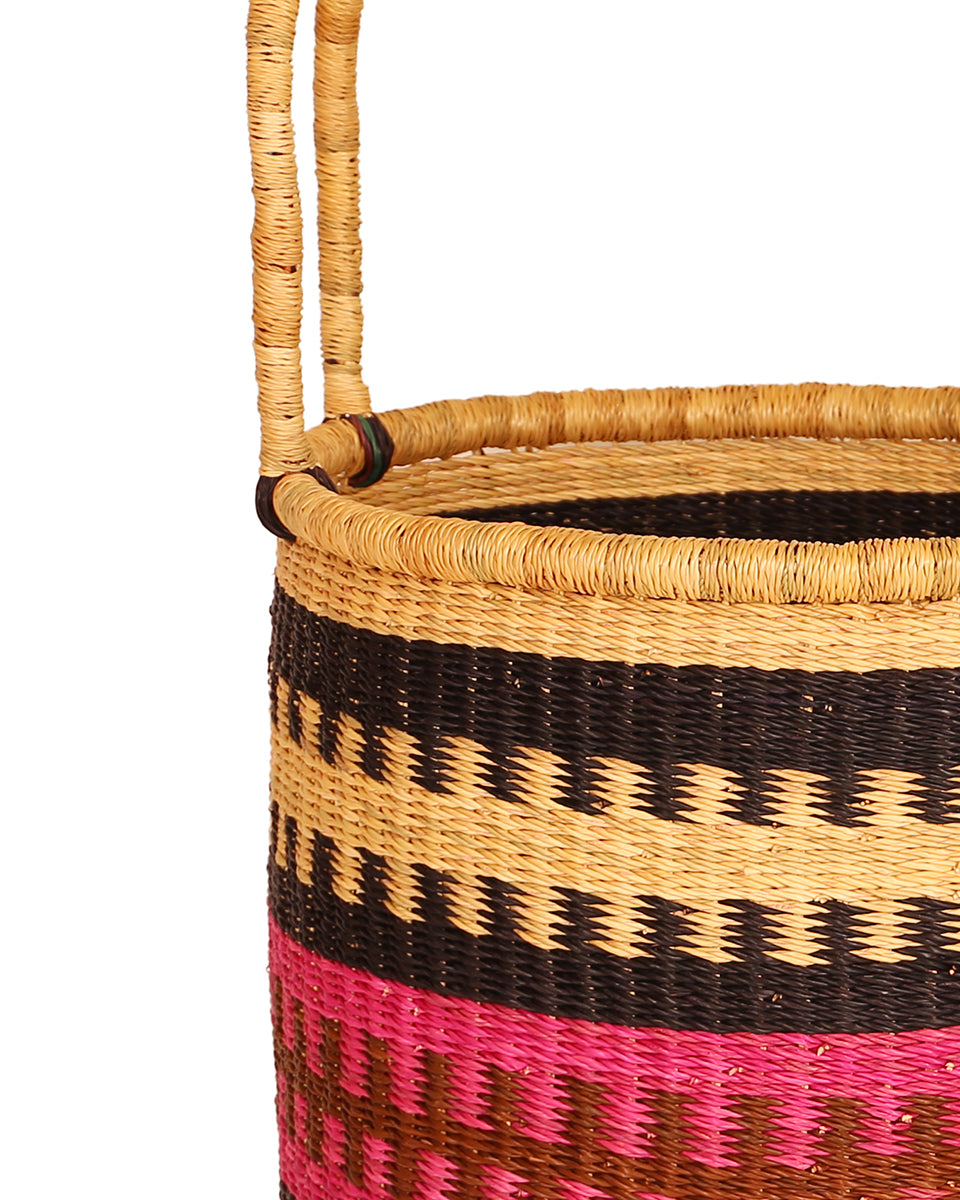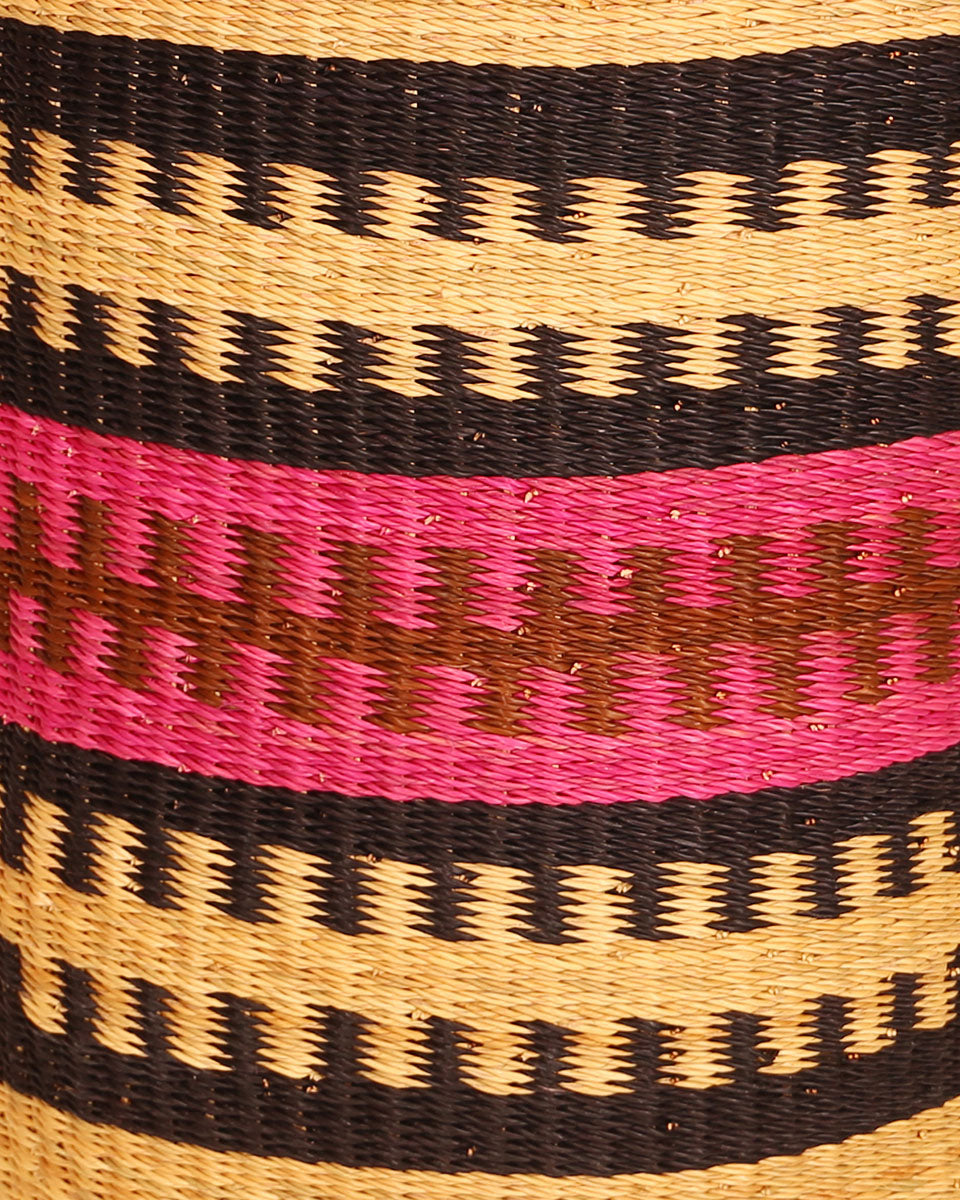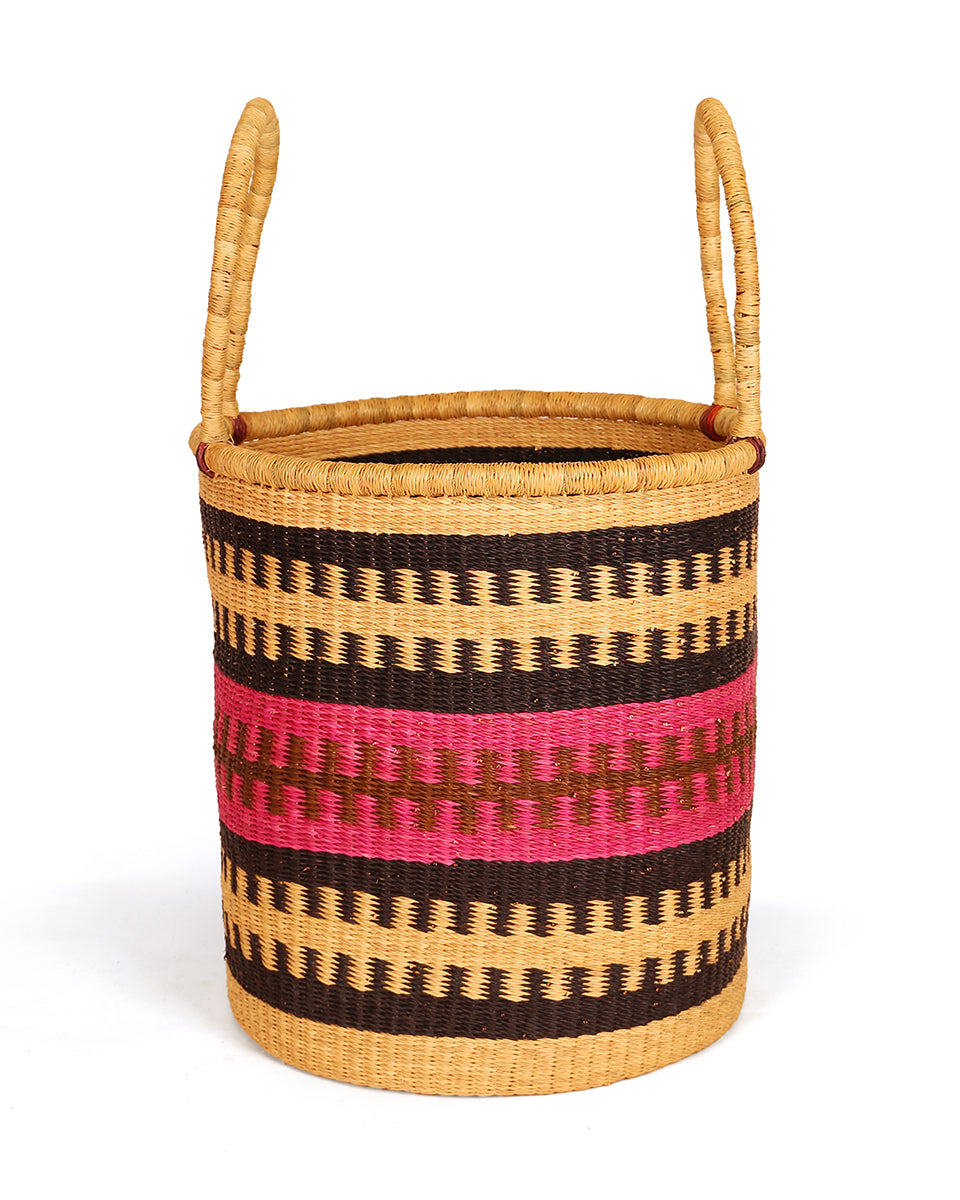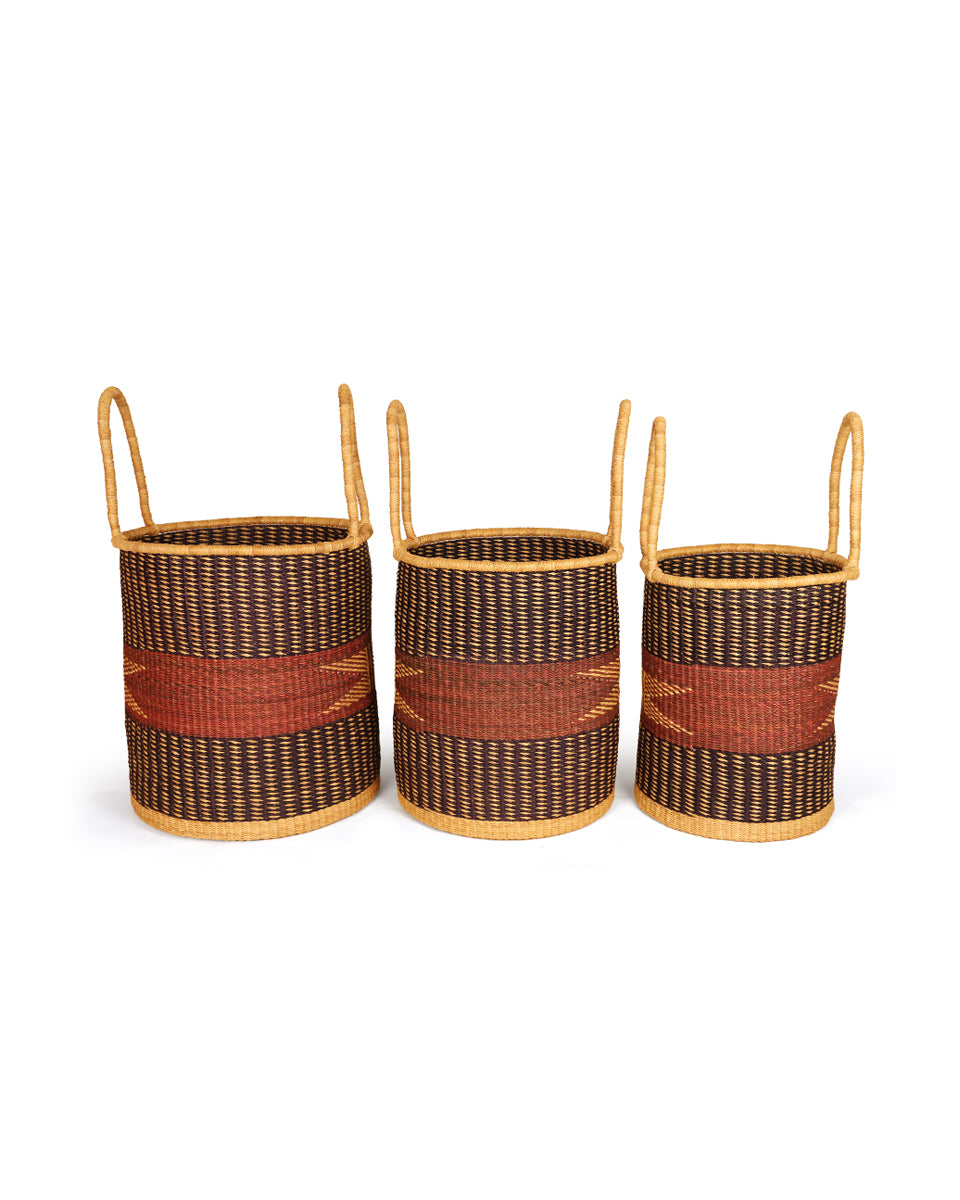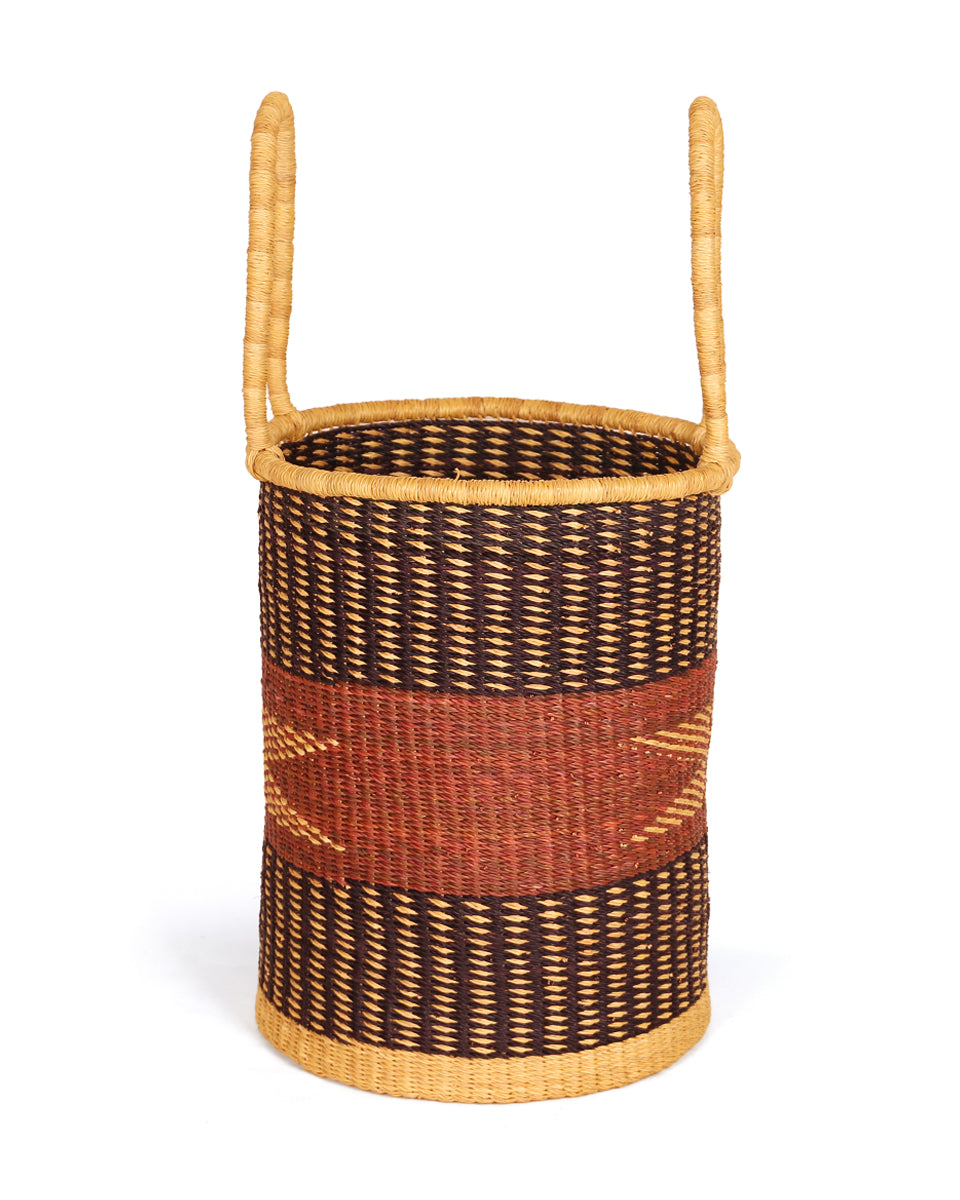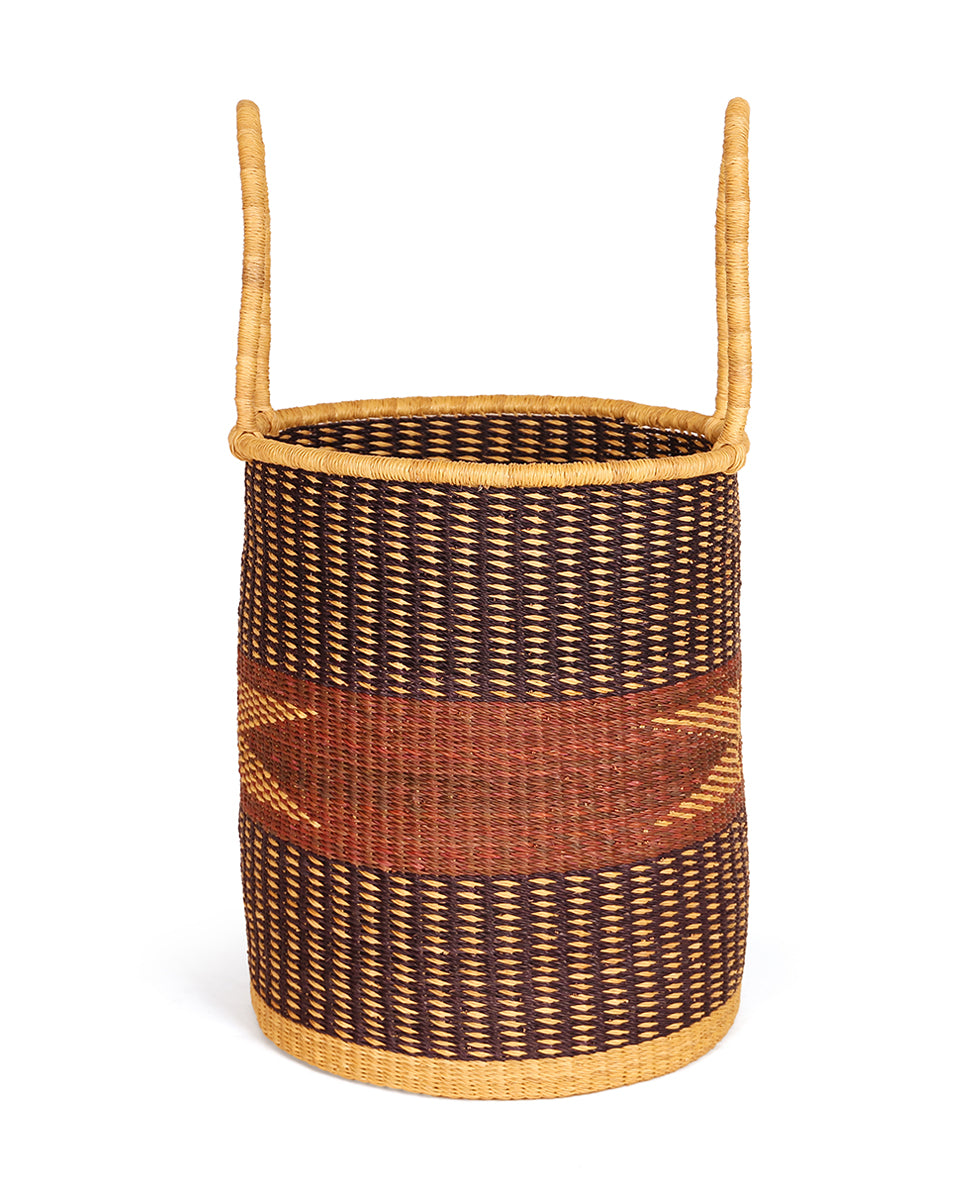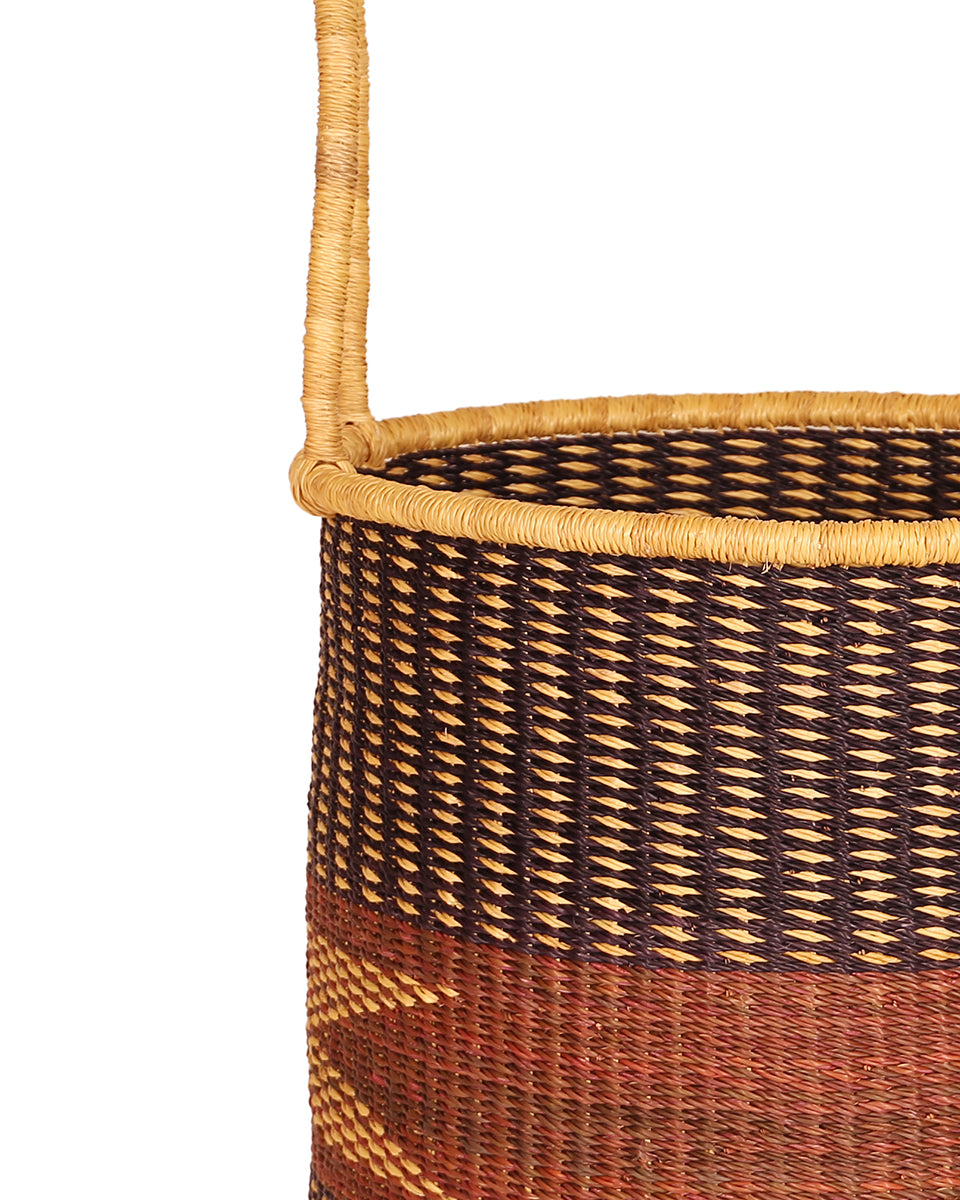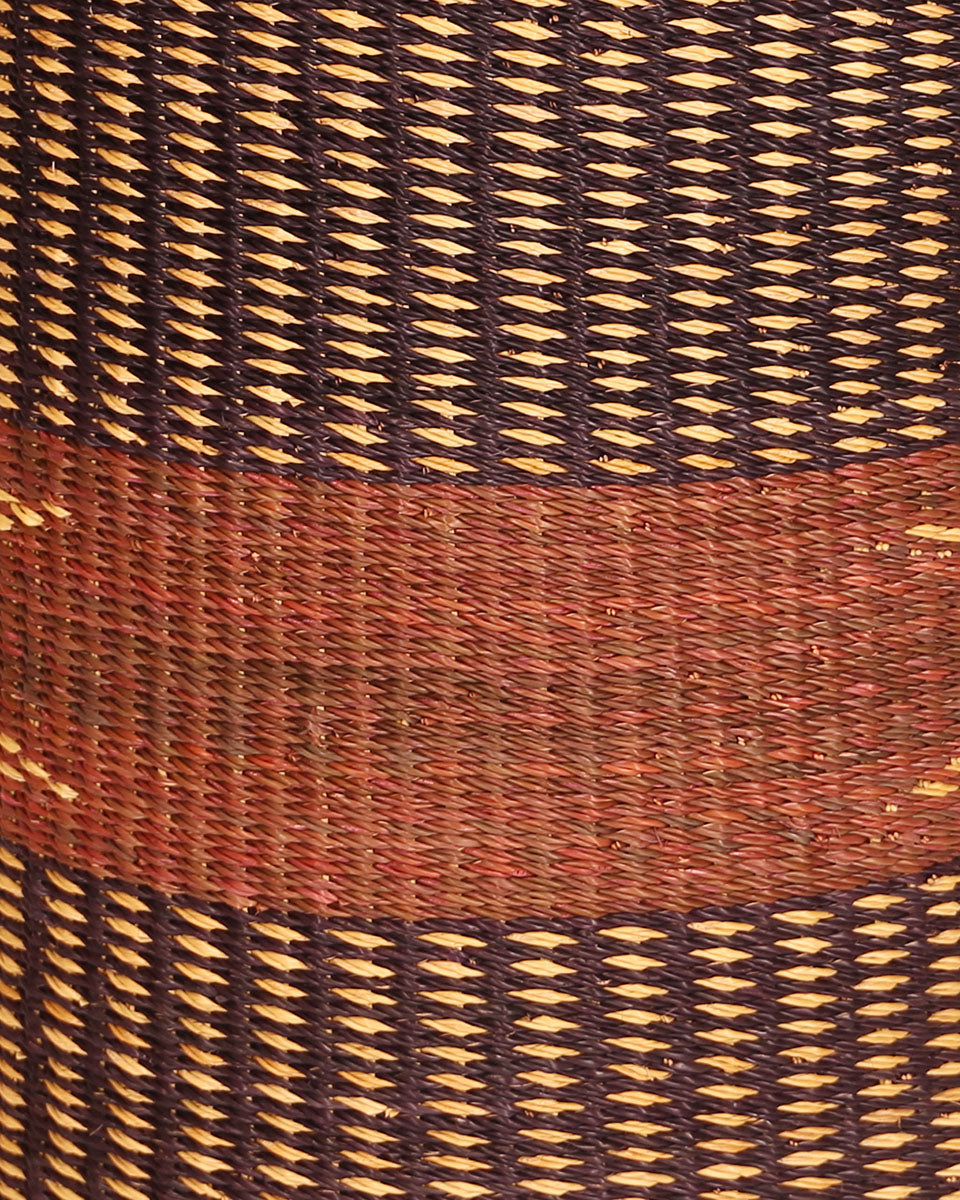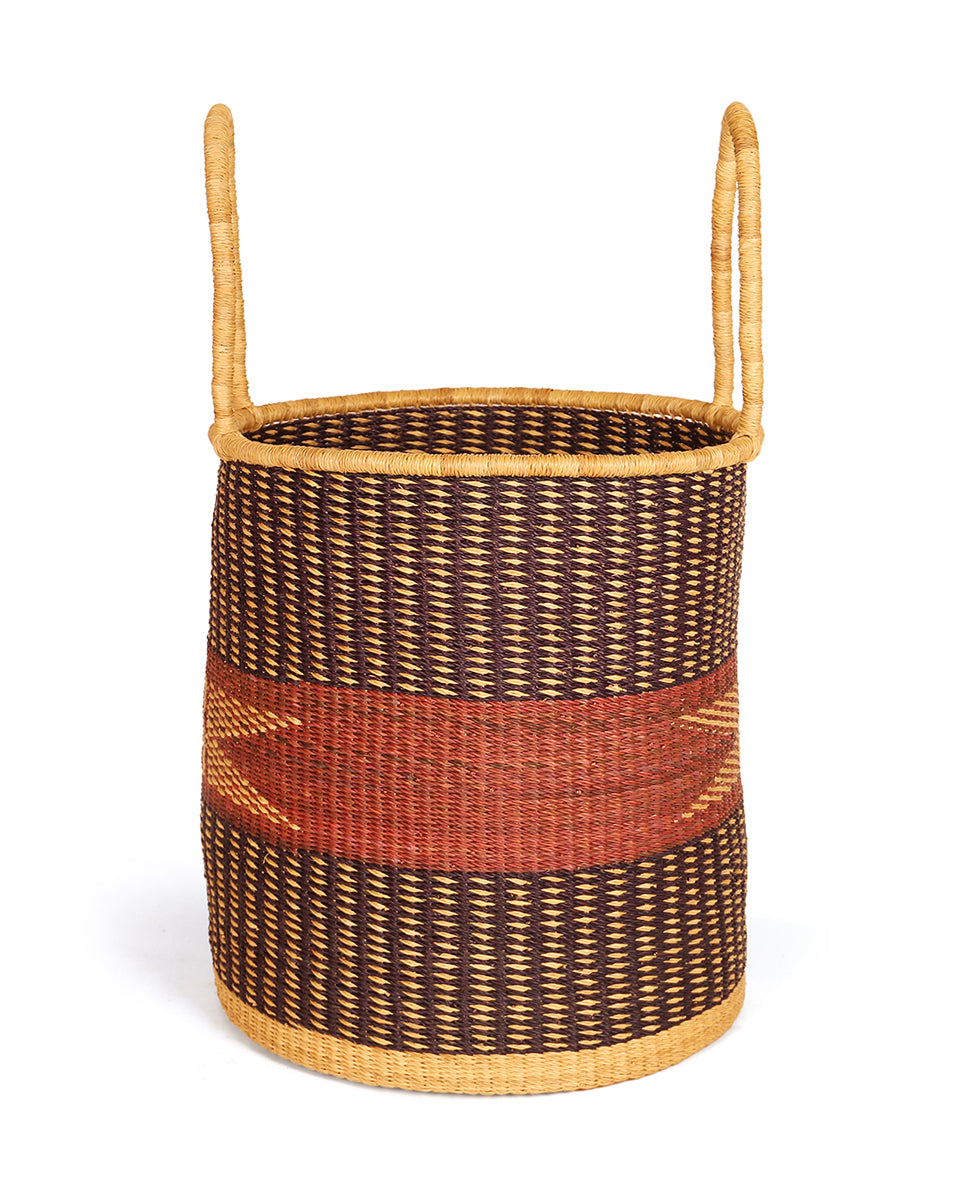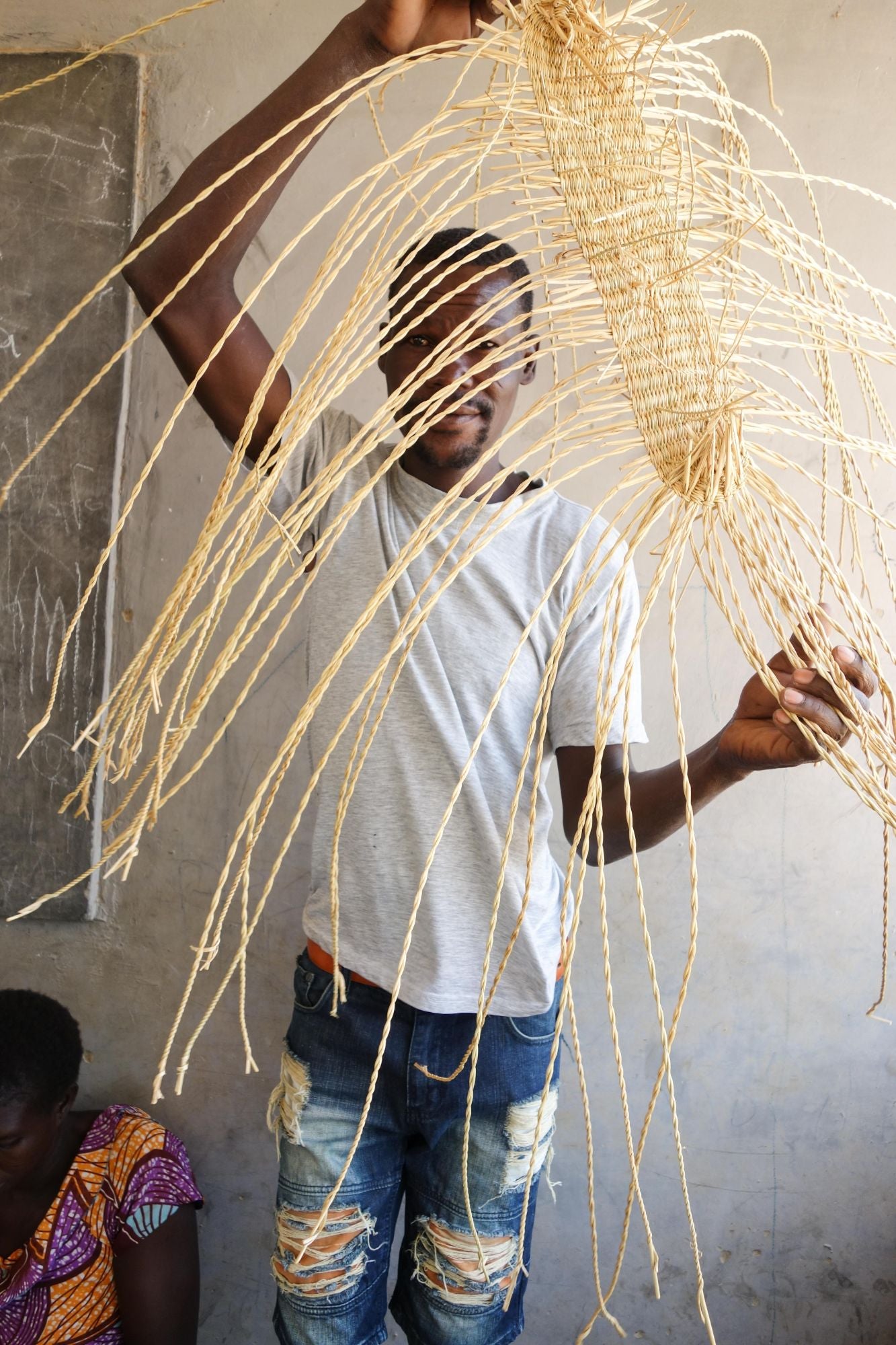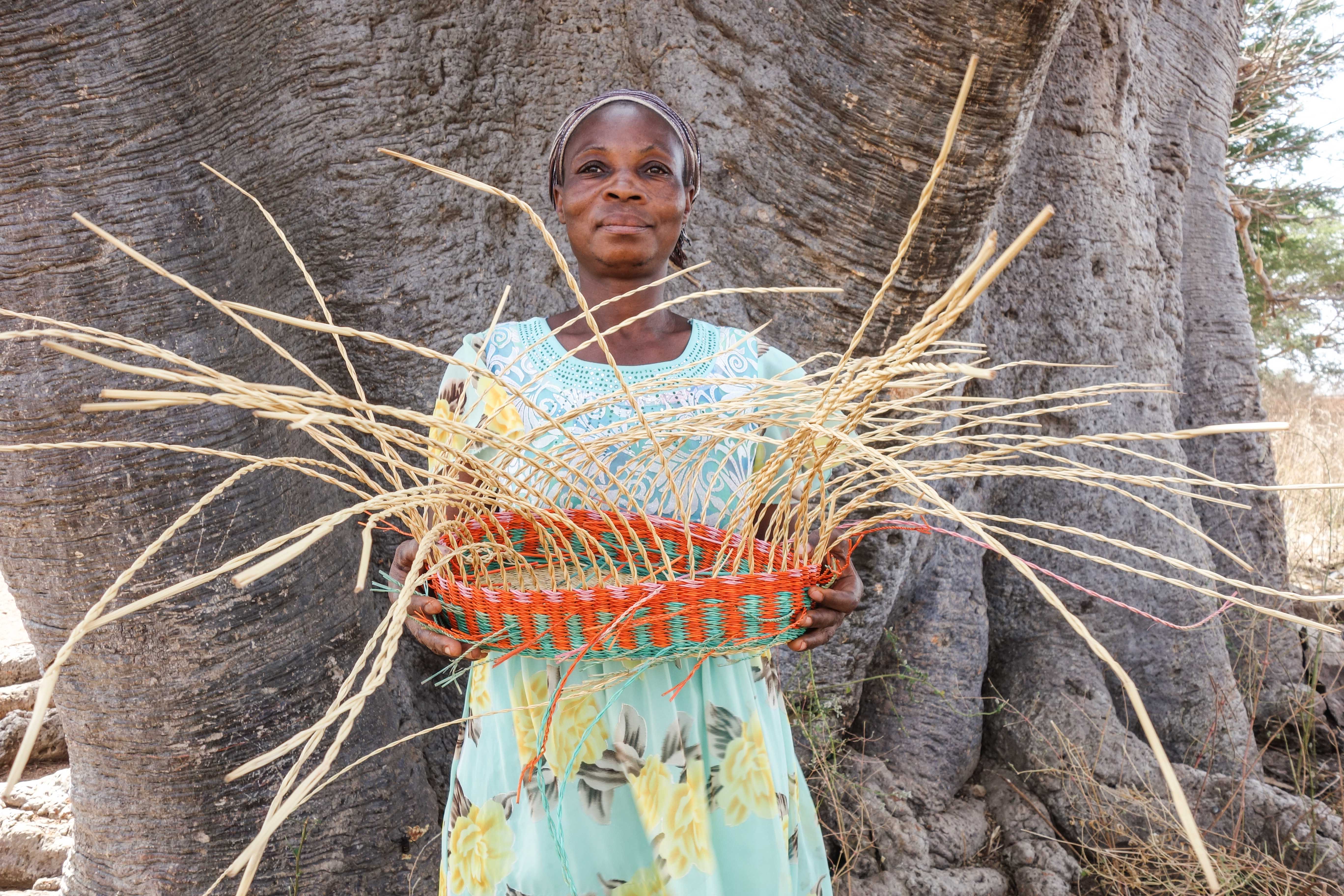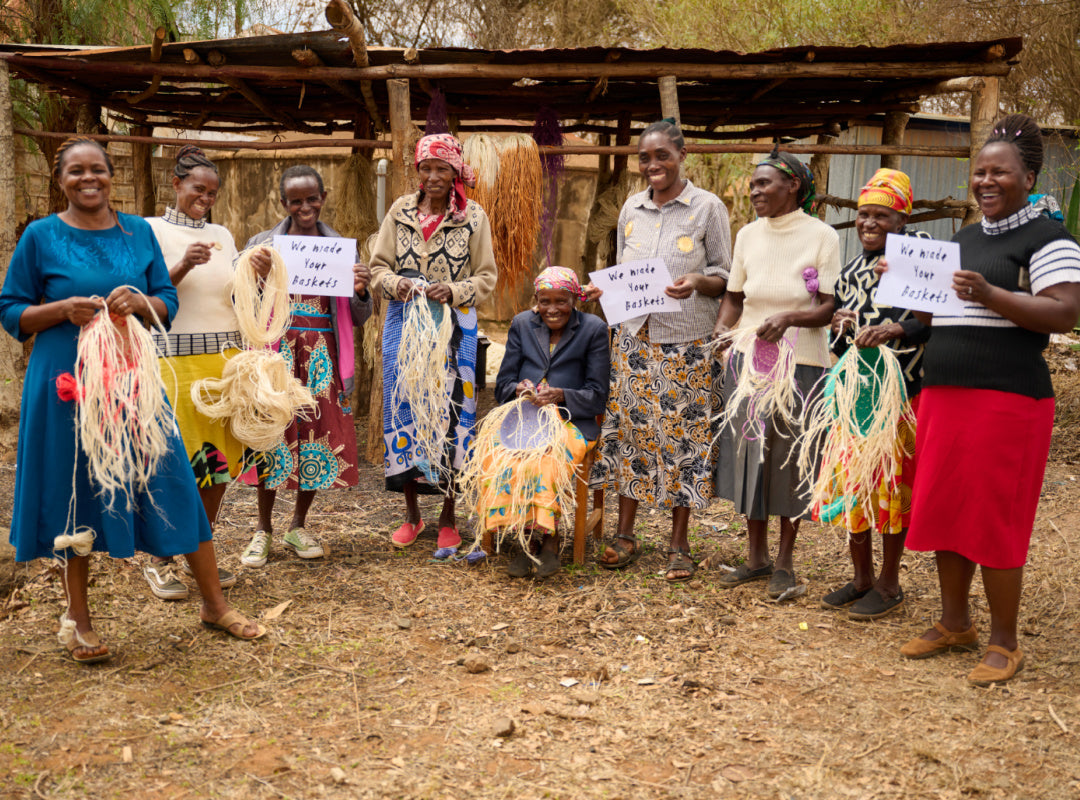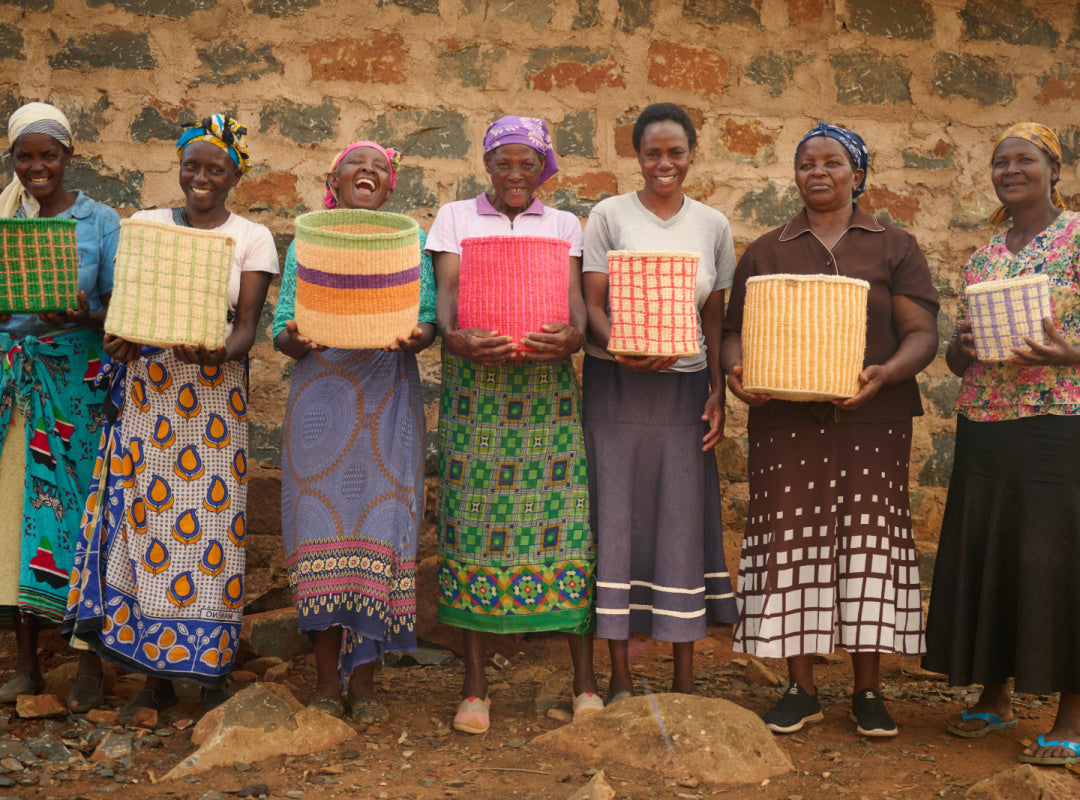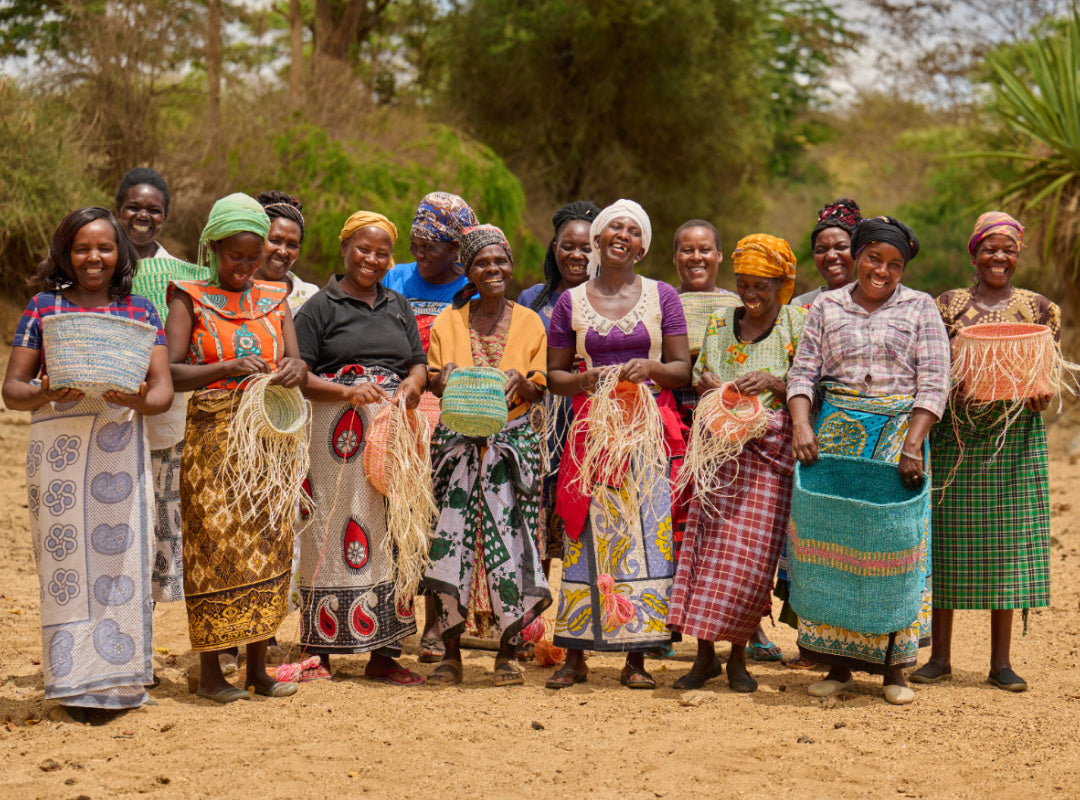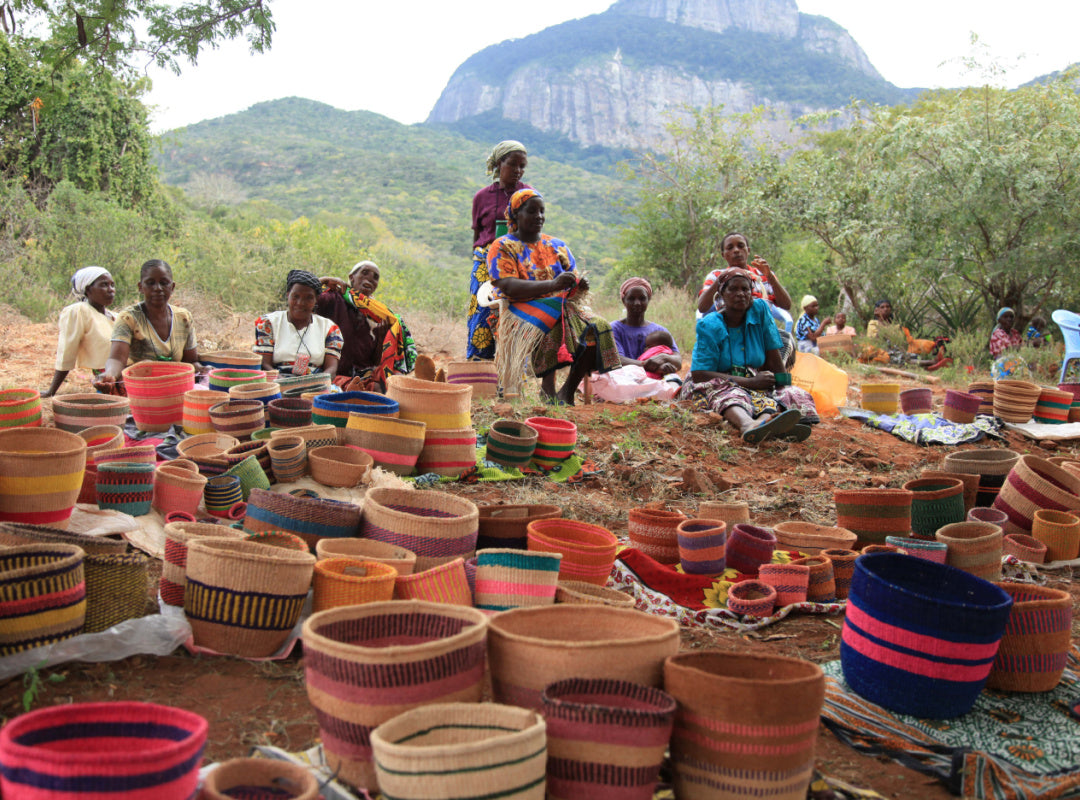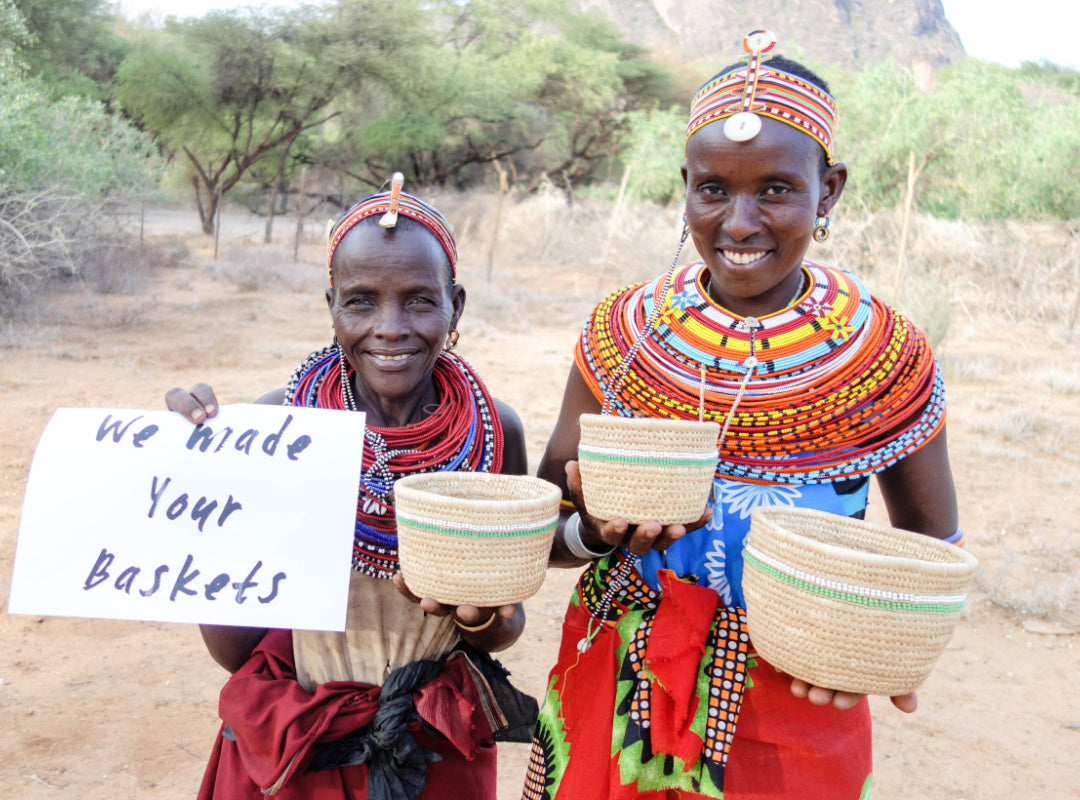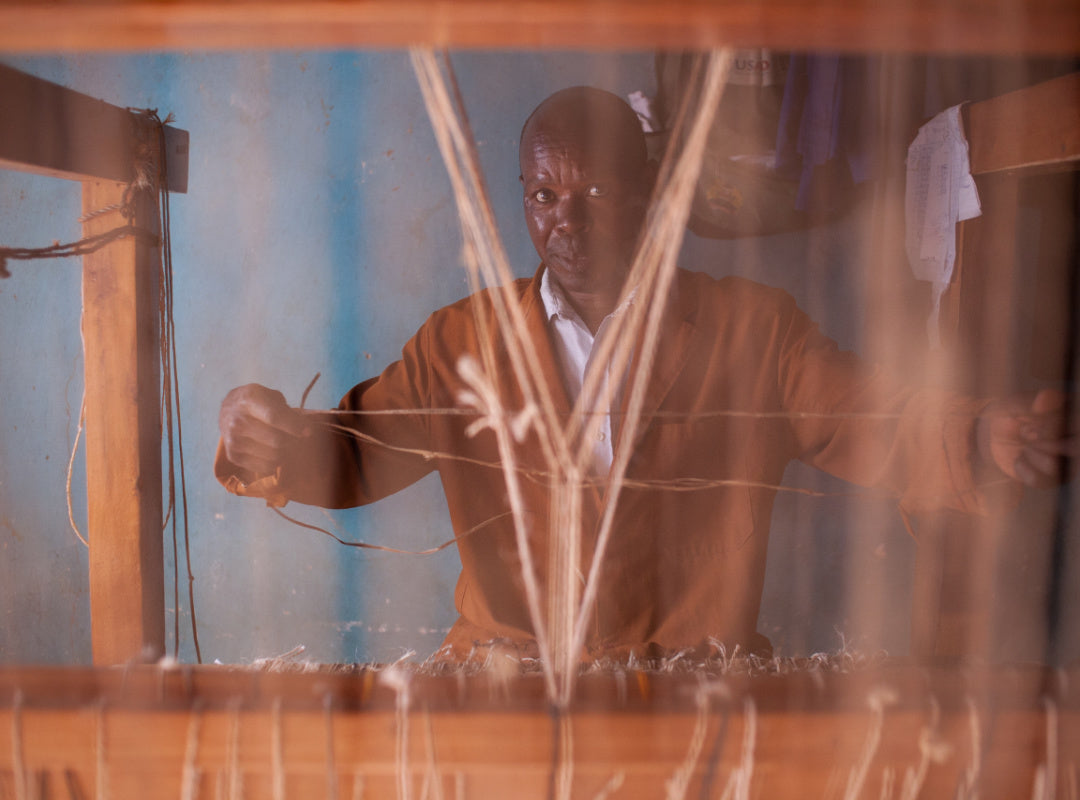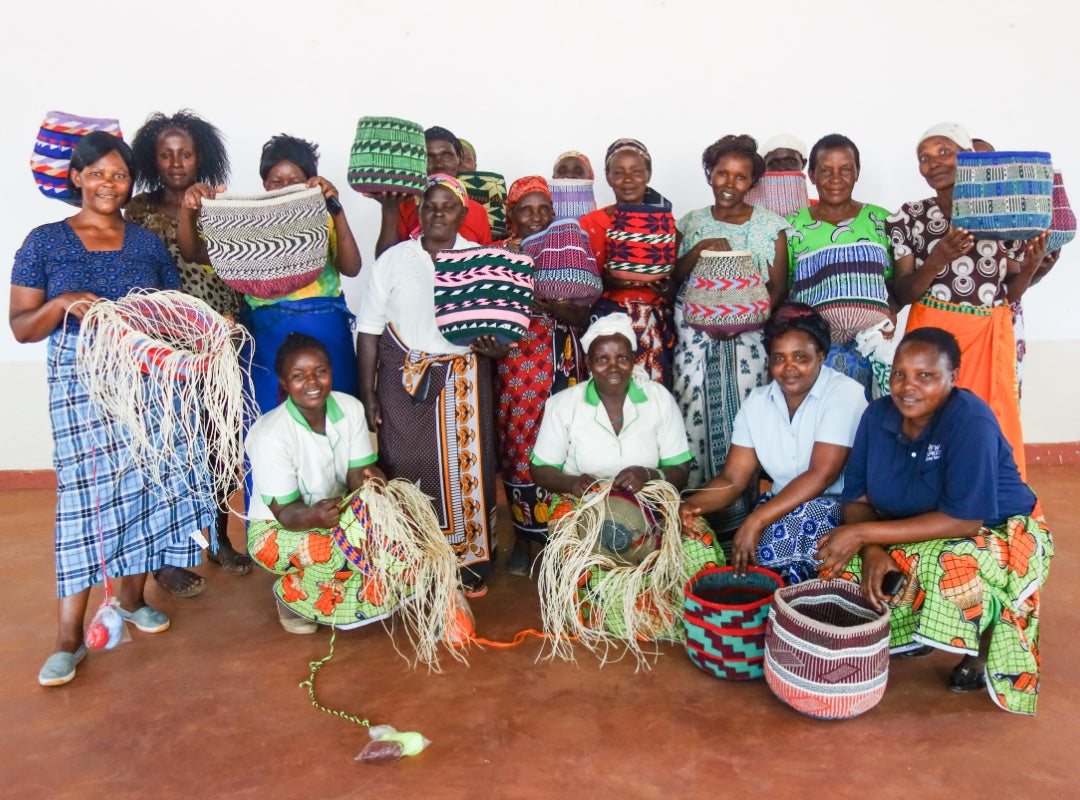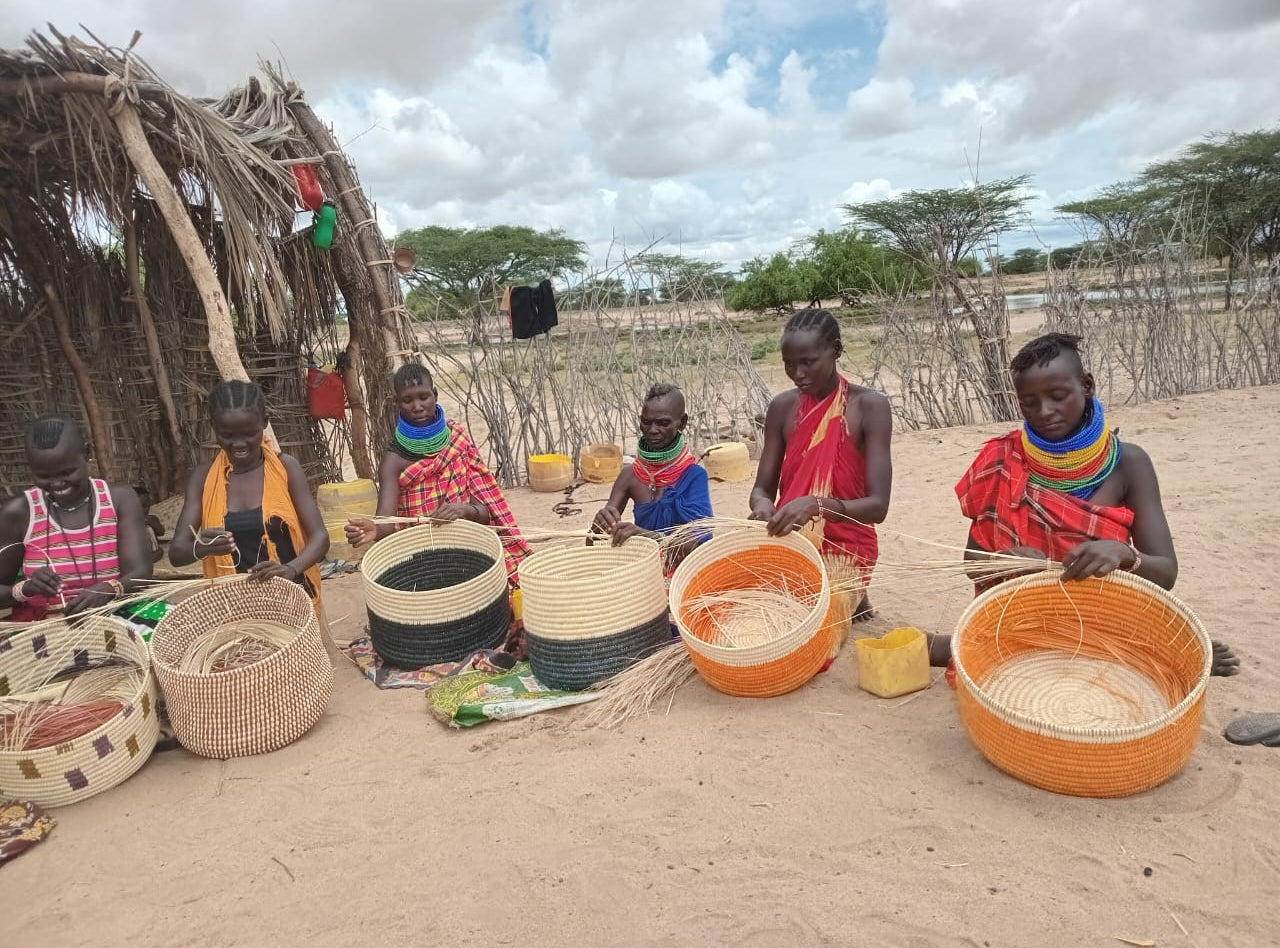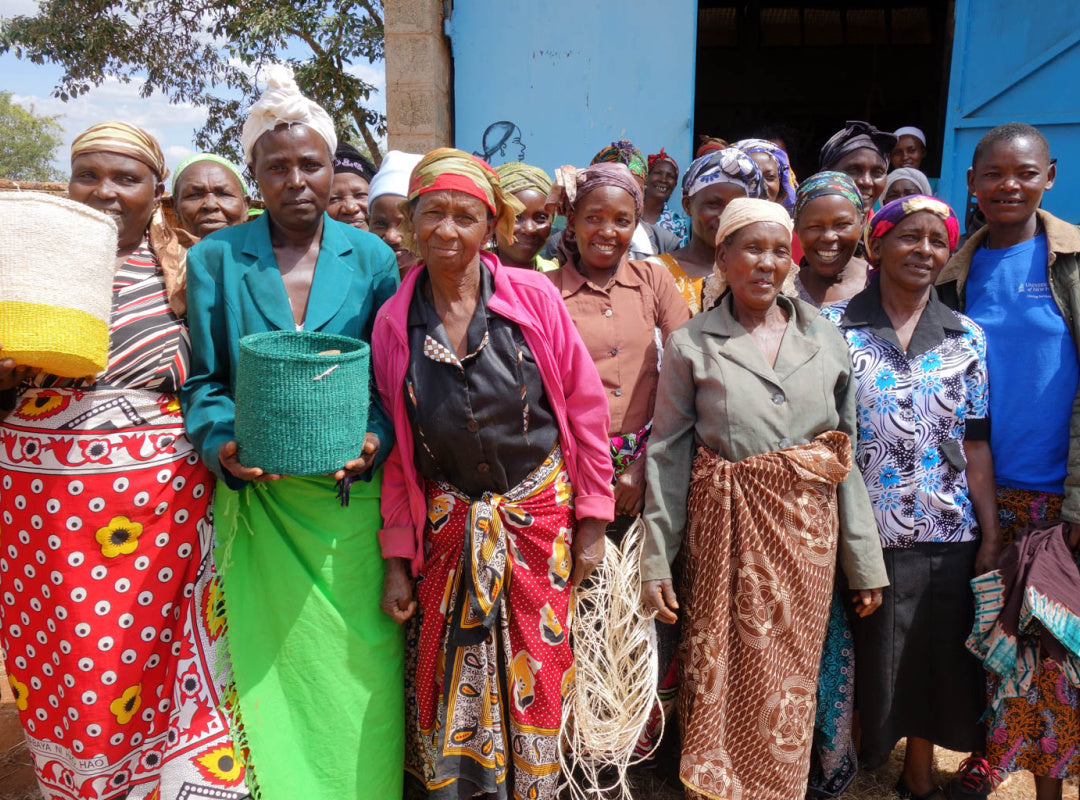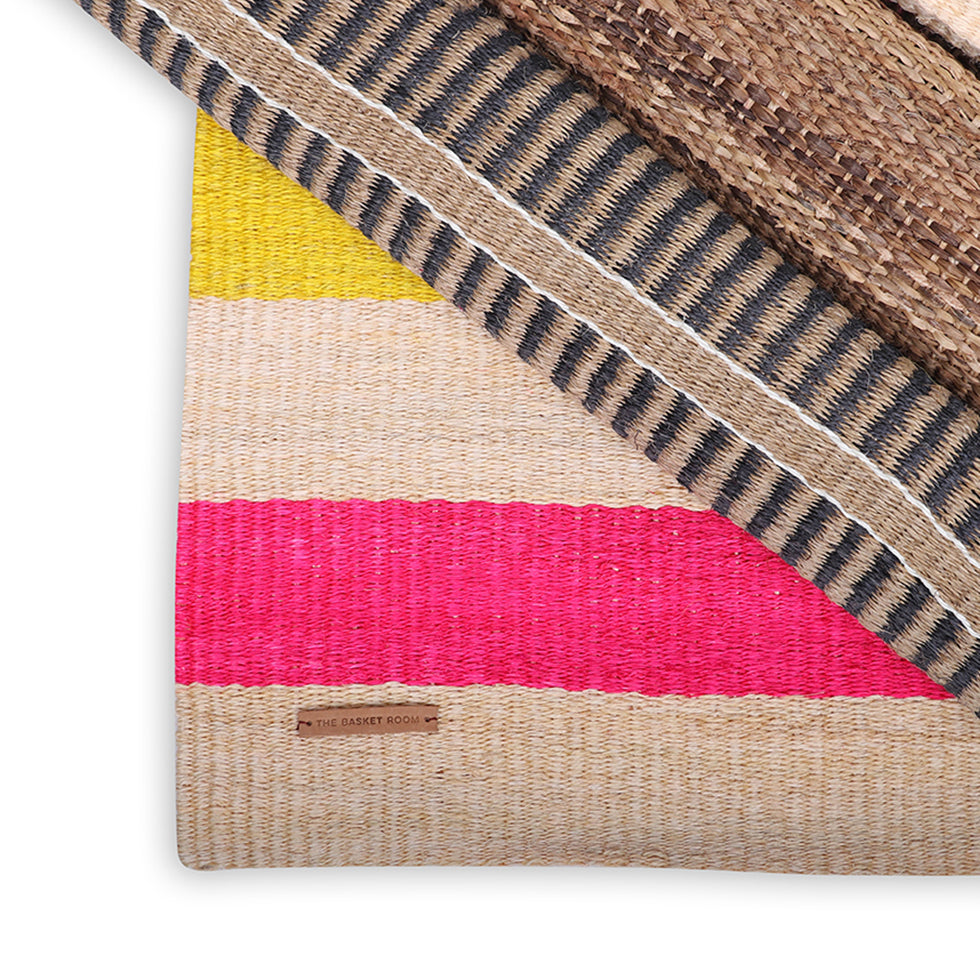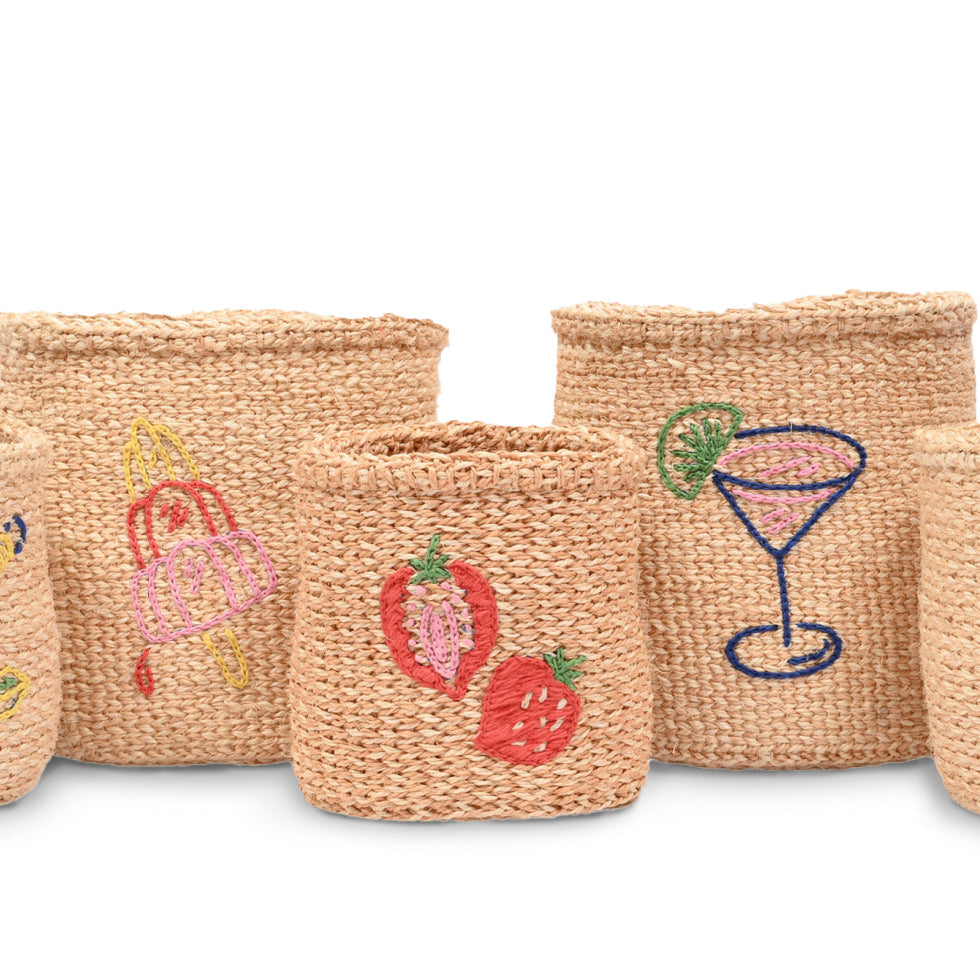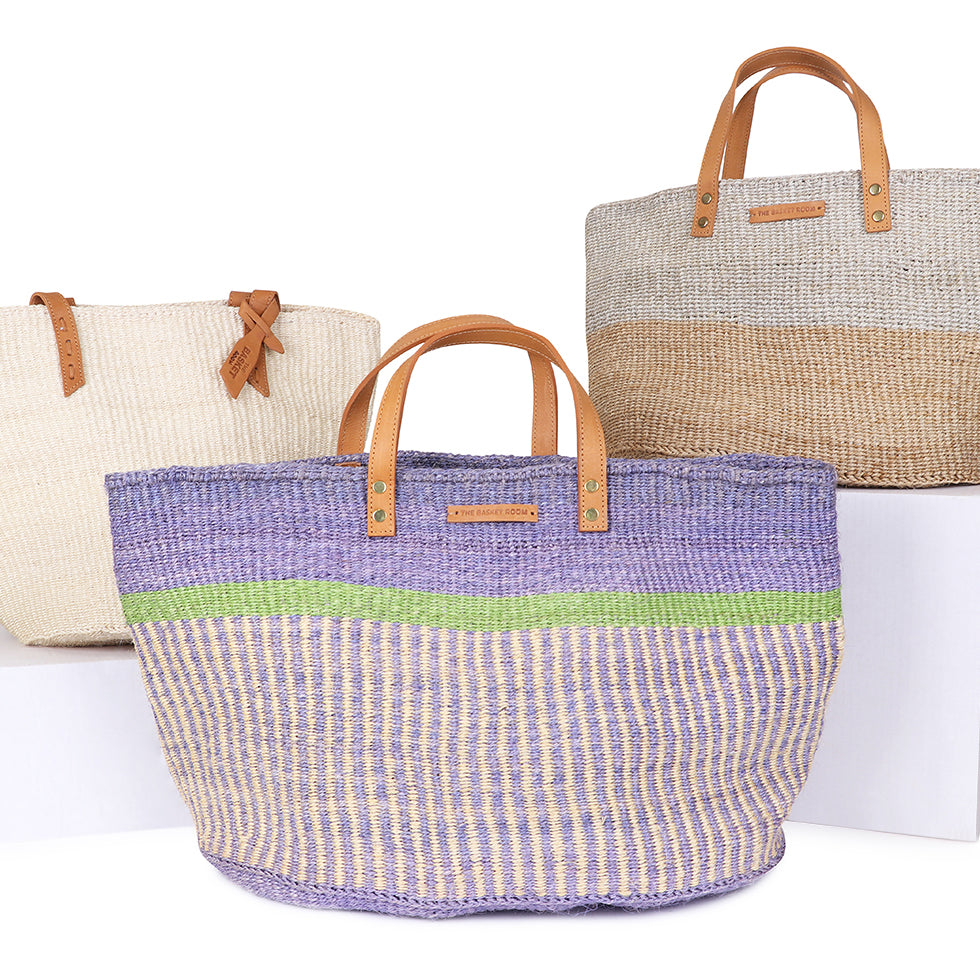Kenia
Unsere Reise in Richtung nachhaltigen Stil begann in Kenia und der Löwenanteil unserer geflochtenen Körbe wird in Kenia hergestellt. Während jede Region Kenias über ihre eigene reiche Naturvielfalt verfügt, bietet jede Kooperative, mit der wir zusammenarbeiten, Fachwissen in ihrer ganz eigenen Form der Korbflechterei. Web-, Färbe- und Graswalztechniken unterscheiden sich von Region zu Region ebenso wie Korbformen, Muster und Strukturen. Diese kostbaren Kunsthandwerke werden über Generationen hinweg innerhalb von Familien verwoben – entlang eines kontinuierlichen Fadens von der Mutter an die Tochter weitergegeben – und schützen und bewahren eine Kunstform, die so alt wie die Menschheit ist.
Riesig und farbenfroh, lebendig und voller natürlicher Schönheit und Stil – unsere Fair-Trade-Körbe sind so vielseitig wie ihre Heimat und ihre Menschen. Von Sisalgras bis Doumpalme, von Bananenblattfasern bis hin zu Palmblättern – jede Webereikooperative arbeitet mit dem, was lokal verfügbar ist und nur mit dem, was nachhaltig beschafft werden kann, um wunderschöne Körbe herzustellen, die zu 100 % in Kenia hergestellt und ethisch vertretbar sind. Alle Taschenanhänger, Riemen und Korbetiketten aus Rindsleder werden aus Leder hergestellt, das als Nebenprodukt der Lebensmittelindustrie anfällt. Natürliche Farbstoffe stammen aus zerstampften Wurzeln, Rinde und Gemüse aus der Region, während alle synthetischen Farbstoffe aus nachhaltigen Quellen stammen.
Vom Kamba-Stamm bis zu den Kamelhirten der Ariaal-Pastoralisten im Norden Kenias können Sie weiter unten mehr über das Leben der kenianischen Weber, mit denen wir zusammenarbeiten – und die wunderbaren Körbe, die sie herstellen – lesen.
Lernen Sie die Kunsthandwerker kennen
Meet Bernard Nyerere Kimuli: one of the last loom weavers in Kenya. Bernard produces every single rug and mat sold by The Basket Room himself, and this four-minute film introduces Bernard and the story of his rare craft in more detail.
Wer hat Ihren Korb hergestellt?
Who Made Your Basket
Our journey into sustainable style began in Kenya, and the lion’s share of our woven baskets are Kenyan-made. Whilst every region of Kenya boasts its own rich natural bounty, each group we partner with offers expertise in its own unique form of basketry. Weaving, dyeing and grass-rolling techniques differ across the regions as much as basket shapes, patterns and structures. These precious crafts are woven through the generations within families - passed along continuous thread from mother to daughter - protecting and preserving an art form as old as man.
Vast and colourful, vibrant and bursting with natural beauty and style, our handwoven baskets are as eclectic as their homeland and its people. From sisal grass to doum palm, banana leaf fibres to palm leaf, each weaving group works with what is locally available and only what can be sustainably sourced, to produce beautiful baskets which are 100% Kenyan made, and ethically produced. All cow hide bag tags, straps, and basket labels are made from leather sourced as a by-product of the food industry. Natural dyes come from pounded roots, bark and vegetables of the region, whilst all synthetic dyes are AZO-free.
From the Kamba tribe to the camel-herding Ariaal pastoralists of Northern Kenya, you can read more about the lives of the Kenyan weavers we work with - and the wonderful baskets they produce - below.
The Basket Room's Kenyan Weaving Partners
Sisal Baskets - Eastern Kenya
Founded in 1988, this weaving cooperative employs over 2000 women split into thirty regional groups, and is officiated by weavers themselves: a shining example of a self-sustaining business with embedded leadership.
We work with them to produce our Sisal Colour Block Baskets, Shoppers & Tableware.
- Weaving Cooperative
- 2030 Female Basket Weavers
- The Basket Room Partner since 2015
Sisal Baskets - Eastern Kenya
Led by their inspirational chairlady Dorcas Ndinda, these artisans live south west of Nairobi in an arid area, amongst the hills and pineapple fields. They are especially skilled in producing repeat pattern storage baskets to exacting standards and dimensions.
We work with them to produce our Sisal Striped, Checked & Plain Baskets and our Tableware.
- Managed by Madam Dorcas
- 150 Female Basket Weavers
- The Basket Room Partner since 2015
Sisal Baskets - Eastern Kenya
This weaving collective was set up single-handedly by a Kenyan entrepreneur and mother-of-three, where she lives in rural Kenya. She now leads twelve weaving groups with over thirty weavers in each group.
We work with them to produce our Sisal Laundry Baskets and Sisal Tote Bags.
- Family run business
- 500 Female Basket Weavers
- The Basket Room Partner since 2015
Sisal Baskets - South East Kenya
The Basket Room partners with a Community Based Organisation (CBO) which represents a number of women’s weaving cooperatives. All of the profits from sales - as well as any other money received from donations to the CBO - are used only to offer support to these women’s groups.
We work with them to produce our Planter Baskets, Sisal Wall Hangings, Bread Baskets and Beach Bags.
- Community Based Organisation
- 1050 Female Basket Weavers
- The Basket Room Partner since 2014
Doum Palm Baskets - North-West Kenya
The weavers of these beaded baskets are semi-nomadic pastoralists (herding camels, cattle, sheep and goats) known collectively as Ariaal: not fully Samburu nor fully Rendille but a rich mixture of the two tribal cultures. The Ariaal are known for their ability to innovate, borrowing and adapting styles from both traditions - in house building, in bead making and in handicrafts.
We work with them to produce our beaded baskets.
- Weaving Cooperative
- 120 Female Basket Weavers
- The Basket Room Partner since 2015
Sisal Baskets - Eastern Kenya
Bernard Nyerere Kimuli (or 'Buffulo' as he is famously known as in his village) weaves all our rugs and runners at The Basket Room. We call him ‘The Last Loom Weaver,’ because there are now extraordinarily few weavers in Kenya with the skills that Bernard has mastered.
We work with Bernard to produce our Rugs, Runners and Doormats.
- Independent Loom Weaver
- 1 Male Weaver
- The Basket Room Partner since 2017
Yarn Baskets - Eastern Kenya
In 2004, there were only 4 elders from this Weaving group remaining in the area who could weave these baskets! There are now 100 members in the cooperative reviving this dying art and new members joining to learn the skill of their ancestors.
We work with them to produce our Upcycled Yarn Baskets.
- Weaving Cooperative
- 100 Female Basket Weavers
- The Basket Room Partner since 2016
Doum Palm Baskets - North-West Kenya
We work with a group comprising of 300 talented women from 6 local villages. These women were mostly taught to weave by their mothers and grandmothers - and they continue to pass on this skillful craft to younger generations today.
We work with them to produce our Palm Laundry Baskets.
- Not-for-Profit Social Enterprise
- 80 Female Basket Weavers
- The Basket Room Partner since 2017
Sisal Baskets - Eastern Kenya
This weaving cooperative is over 700-women strong, and was founded in 2011. This is a relatively new weaving co-operative, and there are plans to pay its members a regular dividend in time: money, which will help families to pay school fees and meet medical bills.
We work with them to produce our Embroidered Baskets.
- Weaving Cooperative
- 80 Female Basket Weavers
- The Basket Room Partner since 2015
